32 common UX job interview questions with example answers
Last updated
11 January 2024
Reviewed by
Miroslav Damyanov
Short on time? Get an AI generated summary of this article instead
Whether it's your first UX research job or the next step in a long career, the interview process is often nerve-wracking and stressful.
Many candidates spend a lot of time worrying about how the interview process will go. What kinds of questions will the interviewer ask? What are the best ways to answer them?
As with most things, the best answers depend on your circumstances. Different phases of the interview process ask different types of questions.
In this guide, we aim to provide an overview of the types of questions you may encounter in each phase of the process.
Keep reading for concrete tips on approaching these questions so you can feel confident and prepared.
- 7 background and experience questions
The interviewer will ask these questions to get to know you better and glean a little about your experience:
What did you study in college, and how has it prepared you for a career in UX research?
How do you define a successful user research project?
How have you collaborated with design, product, and engineering teams?
How has your approach to UX research evolved since you began your career?
Describe a particularly impactful research project you've led and what you learned from it.
Describe a project that didn’t implement your findings and how you handled it.
Some of these questions might not apply to entry-level positions.

Tips for answering UXR background questions
Be specific.
Interviewers aren't looking for generic answers. Answer questions by detailing specific projects and experiences. Detail how the experience relates to their question.
Highlight impact
Companies want to hire someone who will make an impact on their products. Discuss tangible ways your research has increased user engagement or retention. When possible, give precise metrics.
Showcase collaboration
Being a team player is vital in any position in a company, but that's especially true for UXR. Discuss how you collaborated with designers, product managers , and other stakeholders to inform decisions.
Discuss methodologies
Part of gauging your experience is examining how well-rounded you are. Discuss different research methods you’ve worked with to highlight your versatility.
Interviewers are great lie detectors. If you haven't used a particular method or tool, don’t lie about it. Missing some experience is less of a dealbreaker than lying.
Highlight soft skills
Many companies find that employees often lack the soft skills for effective teamwork and collaboration. Be sure to highlight how your soft skills have driven results with examples.
Show continuous learning
The field of UXR is constantly evolving. Unless you've recently graduated college, you should have been evolving with it. Be sure to mention any classes, workshops, or other training that you've had to keep your skills sharp.
Don't fear failure
Sometimes, projects don't go as planned. It can be tempting to avoid discussing these, but interviewers aren't expecting perfection. Instead of avoiding projects that didn't go well, use them as an opportunity to highlight how you learned and grew from them.
Prepare a portfolio
A portfolio of your work showcasing the projects you're most proud of can serve as a visual aid. It’s an easy-to-access place for key metrics and projects, making answering questions easier.
Practice active listening
This is one of the soft skills mentioned earlier. Listen carefully to the question to ensure your answer is relevant. If a question is unclear, don't be afraid to ask the interviewer to clarify.
Take your time
Interviews can be stressful, and stress often results in impulsive answers. Keep the stress under control by taking your time to think about the question to provide a better answer.
- 8 decision-making assessment questions
A UX researcher is responsible for making or influencing many decisions that will impact a project's success. The interviewer will ask questions that assess how good you are at making these decisions.
Some examples include:
How do you decide which research method to use for a particular project?
How do you prioritize research requests from different teams or stakeholders?
How do you decide what to research with limited time or resources?
How would you handle situations where user needs conflict with business goals?
How do you handle situations where quantitative data contradicts qualitative findings?
How do you determine if a finding is significant enough to recommend design changes?
Describe a time when your research directly impacted a product decision.
How do you ensure your recommendations align with short- and long-term strategy?
Tips for answering decision-driven research questions
Think aloud.
Take time to gather your thoughts before speaking. Once you do, walk the interviewer through your thought process. This will show off your analytical and decision-making skills better than simply answering questions.
Reference past experiences
The interviewer wants to know how you'll put your decision-making skills into practice. The best way to do this is to highlight real-world examples of your skills.
Emphasize user-centricity
The user experience is obviously one of the most important parts of user experience research. Highlight how the user's needs and experiences are central to your decision-making.
Consider business objectives
While user needs should always be at the forefront of UXR, decisions must also align with business goals. Let the interviewer know how you balance these two goals.
Data-informed decisions
Data has always driven research of any kind. In the era of big data, that's never been more true. Discuss how you leverage quantitative and qualitative data to inform your decisions.
Discuss collaboration
UX research is a collaborative field. Often, you won't be the only one involved in the decision-making process. Discuss how you've collaborated with various other business units to come to the best decision for all stakeholders .
Acknowledge trade-offs
Decisions often involve trade-offs between two competing interests. Interviewers are going to ask questions about how you'd handle these situations. Be prepared to answer them.
Stay calm and logical
Your interviewer will likely ask complex questions that require deep thought. Don't rush to an answer. Take a moment to process the question to answer it logically.
Ask clarifying questions
Given the complex nature of some of the questions you'll need to answer, you might not fully understand them the first time. Asking clarifying questions shows thoughtfulness and ensures you don't give a silly answer.
- 9 technical questions
Your technical capabilities aren't the be-all and end-all of the interview, but they are its meat and potatoes. These questions will determine whether you have the knowledge to perform the job effectively.
Some questions you may hear are:
Which UX research tools are you most familiar with?
How do you ensure the validity and reliability of your research data?
How do you handle recruiting participants for research studies?
How do you typically analyze and prioritize user feedback from disparate sources?
How do you structure and present your findings to ensure they're actionable for others?
How do you employ user journey mapping to identify UX pain points and opportunities?
What strategies do you employ to ensure unbiased results during user testing sessions?
What metrics do you track in usability studies, and how do they inform your conclusions?
Describe when you used a specific statistical analysis method to interpret research data.
Tips for answering process and technical knowledge questions
The interviewer will be asking you many particular questions. They are looking for equally specific answers. Avoid generalities and answer the question as directly as possible.
Use real-world examples
Back up your answers with examples from your work. Discuss specific projects, challenges, and how you applied your technical knowledge to address them.
Explain your process
As your math teachers wanted you to show your work, interviewers are interested in how you arrive at your conclusions. Explain the thought process behind your answers.
Highlight continuous learning
Answers to technical questions are an excellent opportunity to show the interviewer that you have an interest and background in continuing your education.
Showcase problem-solving skills
Many questions will revolve around the challenges you face. Answering these in detail is a great way to show off the problem-solving skills you've developed in the field.
Speak the language
Remember, you aren't talking to a layperson who doesn't understand jargon. You're trying to impress someone who does. Use the appropriate technical terms to show off your knowledge of the subject.
Prepare in advance
If you think the interview will contain technical questions, give yourself time to quickly review the material. This will ensure you don't get caught off guard by a question you haven't considered.
Be enthusiastic
Interviewers want someone who is excited about the field. When answering technical questions, show your enthusiasm for the work. This will show the interviewer that your passion for the field aligns with company culture and expectations.
Ask reflective questions
Another way to demonstrate your passion for the field is to ask the interviewer related questions after you answer. Don't go overboard and give the impression that you're the one conducting the interview, but show you love to discuss the topic.
- 8 adaptability questions
Interviewers will likely want to know how you handle things not going as planned or when conditions change rapidly in the middle of a project.
Some of the questions they may ask to determine this include:
How would you handle stakeholders who disagree with your research findings?
How do you adapt your research focus to match product lifecycle stages?
How do you handle feedback or criticism about your research approach or findings?
How do you adapt your research objectives to sudden changes in business goals?
How do you approach research with emerging technologies or unfamiliar platforms?
Describe a time when you had limited resources for research and how you made it work.
Describe a time you changed your research methods due to unforeseen circumstances.
Describe a time you faced significant challenges in a research project and how you overcame them.
Tips for answering adaptability questions
Highlight problem-solving skills.
At its core, adaptability is about problem-solving. As you answer the interviewer's questions, discuss the strategies you use to keep your thinking critical and focus on the task at hand.
Show flexibility
Whether it's due to new data, stakeholder feedback, or changing project goals, UXR work requires flexibility. Giving examples of how you've handled these situations in the past will give interviewers a better idea of how easily you adapt to new directions.
Emphasize collaboration
Adaptability in UX research involves changing needs across various teams. Showcase how you've integrated the needs of other stakeholders and teams into your process as goals change.
Communicate proactively
In scenarios where you've had to adapt, emphasize how you effectively communicated changes or new directions to stakeholders.
Show resilience
Few people enjoy sudden changes, but a good researcher will not be dismayed. As you answer your questions, emphasize your resilience rather than your annoyance at the changes.
Demonstrate empathy
Several questions may include conflicts with other team members or stakeholders. Always demonstrate that you value their input and consider it, even if you go in another direction.
While it's essential to provide detailed examples, ensure your answers are concise and to the point. Avoid over-explaining.
- Frameworks for crafting effective interview answers
An effective and engaging interview answer tells a story. Like any story, it needs structure.
Several frameworks can ensure your interview answers are well-structured. Let’s go over a few so you can find one that best fits your personality and matches specific types of questions.
The STAR method provides a straightforward structure to answer questions. It provides context to the situation and how you resolved it.
It's a good method to use when interviewers seek specific examples of past behavior to gauge your future performance.
Situation : Explain the circumstances of the situation you’re discussing
Task : Explain the challenge or responsibility that arose as a result
Action : Describe the specific actions you took to address the task or challenge
Result : Detail the result of your actions, focusing on positive impacts and lessons learned
This method is a simplified version of STAR. CAR is good for quick-paced interviews or discussing experiences with clear and direct outcomes.
It's easy to remember as a general structure when nerves make it hard to think clearly.
Context : Describe the situation you'll be talking about
Action : Explain the actions you took to resolve it
Result : Discuss the outcomes of those actions
METEOR goes more in-depth and incorporates metrics and broader outcomes, providing a tangible scale to the situation you’re discussing.
This framework is good for quantifying the impact of your actions or answering questions about scenarios with broad-reaching implications.
Metric: Start with numbers or data to give context or scale
Example: Provide a specific scenario or situation
Task: Describe your responsibility or challenge in that scenario
Effect: Talk about the immediate impacts of your actions
Outcome: Expand to broader implications or longer-term effects
Result: Sum up the result of the experience and what you learned from it
- Final thoughts
There's a lot to absorb in this lengthy list of potential UX research interview questions, tips, and frameworks. If you try to memorize all of it, you'll likely stress yourself out even more.
Instead, read over it a few times in the lead-up to your interview and give it a quick review on the day itself. Focus on the tips you hadn't thought of before or stick out in your mind.
Pick one or two frameworks that might apply to your interview. Practice telling the story of some of your past projects under those frameworks.
This approach will familiarize you with the frameworks and how to adapt them on the fly. It’ll also give you a set of stories to draw from during the interview. Good luck!
Should you be using a customer insights hub?
Do you want to discover previous user research faster?
Do you share your user research findings with others?
Do you analyze user research data?
Start for free today, add your research, and get to key insights faster
Editor’s picks
Last updated: 24 June 2023
Last updated: 29 May 2023
Last updated: 29 October 2024
Last updated: 14 November 2024
Last updated: 22 October 2024
Last updated: 4 December 2024
Last updated: 13 May 2024
Last updated: 3 December 2024
Last updated: 25 November 2024
Last updated: 24 October 2024
Last updated: 15 October 2024
Last updated: 15 November 2024
Latest articles
Related topics, a whole new way to understand your customer is here, log in or sign up.
Get started for free
Integrations
What's new?
In-Product Prompts
Participant Management
Interview Studies
Prototype Testing
Card Sorting
Tree Testing
Live Website Testing
Automated Reports
Templates Gallery
Choose from our library of pre-built mazes to copy, customize, and share with your own users
Browse all templates
Financial Services
Tech & Software
Product Designers
Product Managers
User Researchers
By use case
Concept & Idea Validation
Wireframe & Usability Test
Content & Copy Testing
Feedback & Satisfaction
Resources Hub
Educational resources for product, research and design teams
Explore all resources
Question Bank
Maze Research Success Hub
Guides & Reports
Help Center
The Evolving Role of Research Playbook
The Optimal Path Podcast

User Research
The best user research questions and how to ask them
To get the right insights, you need to ask the right questions. Here’s the best user research questions to start gathering feedback right away.
Sep 1, 2022
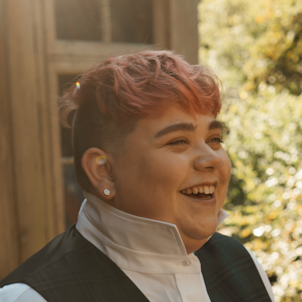
Lorelei Whitman
Content Marketing Manager at Maze
Knowing the right user research questions to ask is vital to the success of your UX research. Research is an invaluable source of input for product development, but before you can get started, you need to make sure the questions lined up will get the insights you need, without influencing the data.
Think of this article as your guide to all-things user research questions: what to ask, how to ask it, and how to create your own questions. Let’s get started.
What kind of user research questions are there?
The kind of questions you ask will depend on your research goals—are you looking to gather user feedback, or find out if a particular feature is (or would be) useful? Are you trying to discover what problems bother your user, or whether they’d prefer one solution over another?
Before planning your questions and diving head-first into research, look at your overarching research plan and objectives. Consider this on a project-by-project basis, as your end questions will be drastically different depending on where you are in the product development process . For instance, if you’re in early product discovery , you may want to discover user intent and pain points. Or, if you’re working on a high-fidelity prototype, you might want to see how users interact with the prototype, and how easy it is to use. Asking questions at different stages of your process is a big part of continuous product discovery and ensuring your product remains the best it can be.
💡 If you’re looking to understand the types of question format used in surveys or user questionnaires, take a look at our guide on how to write survey questions .
User research questions can be categorized in many ways—by objective, research scenario, or point in the product journey, to name a few. Since different questions may apply in multiple situations, we’re going to consider questions organized by their research focus.
Questions for user research can typically be categorized three ways:
- Questions about the problem e.g., what are users’ pain points, what task are they trying to complete, what solution do they want
- Questions about the people e.g., who they are, how they use products, what they want to accomplish, how likely are they to use the product
- Questions about the product e.g., how users’ feel about content or design, can they navigate the product, how usable is it, what features do they like or dislike
Now we know what kinds of questions there are, let’s delve into the value of pre-made questions, and some examples of each question type.
Using pre-made user research questions
To elevate your research, you can opt to use pre-existing questions from a question bank. As with all research tools , there are many benefits to this, including saving time and effort, and having many questions to choose from. Using a question bank also ensures questions are always carefully considered, easily understandable for users, and unbiased.
Meet the Maze question bank
An open-source question repository for product teams, our question bank is aimed at helping you ask the best user research questions to gather insight that will help build truly user-centered products.
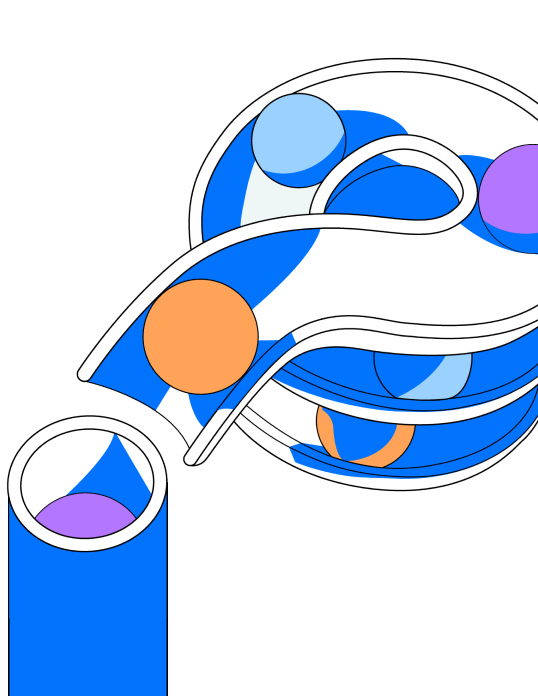
A good question bank will be multifunctional, with questions you can use when running moderated to unmoderated testing, conducting generative or evaluative research, or gathering quantitative or qualitative data. So you can have one place to go for all your user research question needs.
🚀 Boost your research with Maze templates
If you’re a Maze user, you can also use the question bank as a handy companion to fuel your team’s research with Maze—check out the templates column and question block suggestions for maximum efficiency when building mazes.
Ultimately, a pre-made question bank can help save you a lot of time, and allow you to focus on conducting the research and processing analysis.
If you’d like to create your own questions, let’s get into the different user research question types, what questions they include, and how to ask them.
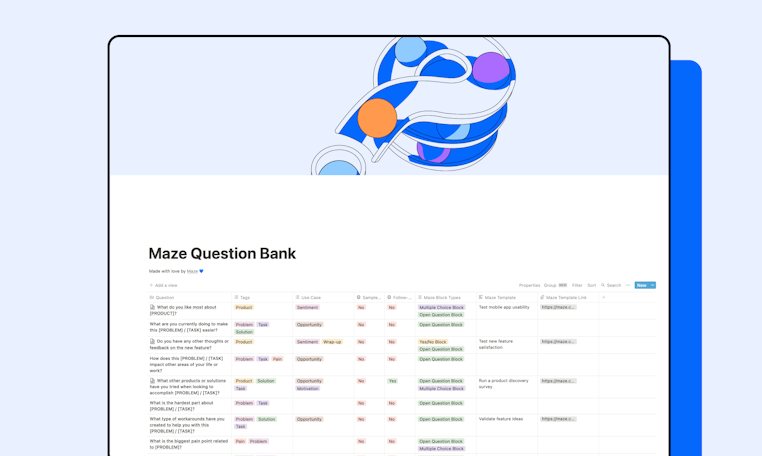
Click on the image to head straight to the question bank 👆
Questions about the problem
To support product and design decisions behind any solution, you need to be familiar with the problem you (and your users) are trying to solve. Whether you’re starting product discovery and want to understand user pain points, or you’re testing new features and want to gauge which will be most popular— you can’t begin working on a solution until you’ve honed in on what the problem is.
What’s bothering your users? How can you make their lives easier? What’s their key challenge, and what are they trying to achieve that’s being blocked by that problem?
Only once you’ve narrowed down a key problem statement can you translate solutions into the user experience, and identify opportunities for product development .
Questions focusing on the problem you’re trying to solve are key in product discovery stages and concept validation . The reason for using a particular product or feature may vary between users—consider Instagram’s Explore tab: it could be used to find friends, connect with like-minded people, or find inspiration.
Questions that can help hone into the problem at hand include:
- What problems do you face when you do [task]?
- Please complete this sentence: "The most frustrating part of trying to complete [task] is…”
- What is your main goal when trying to complete [task]?
- What is your personal measure of success when it comes to [goal]?
- How are you currently solving [problem]?
- Describe your ideal solution to [problem]
Questions about the people
Understanding the problem you’re trying to solve goes hand in hand with the people who are facing this problem—who they are and how they think, how they adopt and use products, their wants, needs and dislikes.
Put simply, there’s no point building a product if it solves the problem your user is having—but not in the way they wanted it to.
To really understand how your users think, and the way they approach a product, you need to understand their mental models. Broadly speaking, a mental model determines how someone forms their thinking process—it might impact the way they approach a problem, the kind of solution they’d like, and how they expect certain features to work.
UX research methods like card sorting are a good way to understand people’s mental models, but you can also gather this insight through thoughtful user interviews or research questions.
User-focused questions also cover understanding attitudes towards product adoption, use habits and circumstances, pricing models, and demographics.
Some example questions you could ask to learn more about your target users include:
- Are there any products that you prefer to use to do [task]?
- What does your job look like in your company?
- How do you prefer to be trained on new products?
- How much would you pay for [product]?
- Please describe who you might collaborate with when [task]?
- How often do you do [task]?
Questions about the product
Once you understand the problem your product will solve, and the people who’ll be using it, it’s time to circle back to the product itself. Questions about the product may be about its usability, what features you’re including, how users feel about content or design, and whether it does what they need it to.
Just like all research, it’s a good idea to ask product-related questions multiple time during the research phase, as both questions and answer will vary depending on what development stage you’re at—from prioritizing which feature to focus on developing first, to assessing how navigable a certain product section is, or reviewing the appeal of specific design aspects.
To gain a well-rounded understanding of how users find using your product or feature, usability testing is imperative. And, if you’re trying to nail down product navigation and identify any bumps in the user journey, tree testing is the research method of choice.
Whatever your focus, questions relating to the product are useful in both evaluative and generative research , and critical for creating a user-centered, solution-focused product.
Sample questions you can use to learn more about the product and features could include:
- How did you find the language (including but not limited to copy, phrasing, tone) used on the website?
- What’s the single most important thing we could do to make [product] better?
- On a scale of 1-10, how was your experience when [task]?
- Was the product navigation as expected?
- If you could change one thing about the design what would it be and why?
- Thinking about what [product] offers, which of the following best describes your feelings about it?
🤔 To dive into the questions you should be asking during usability testing, check out how to ask effective usability testing questions .
Regardless of what questions you ask, it’s worth bearing in mind that this information should be considered a guide, not a rule—as sometimes what people think they’ll do is not what they always do in practice . This is why it’s so important to continue research and testing in all stages of product development, so you can always be working off the most reliable and up-to-date insight.
Guidelines for crafting the right user research questions
Research questions set the standard of the data you’ll gather with them, so it’s crucial to properly craft each question to maximize insight and ensure accurate results.
Using a pre-made question bank is one way to keep questions effective, but if you’re writing your own questions, bear in mind that everything from the language you use to the structure or format of questions can influence the user’s answer.
The best questions for user interviews and research are clear , precise , and unbiased . Let’s go over some ultimate tips for crafting questions that fulfill this.
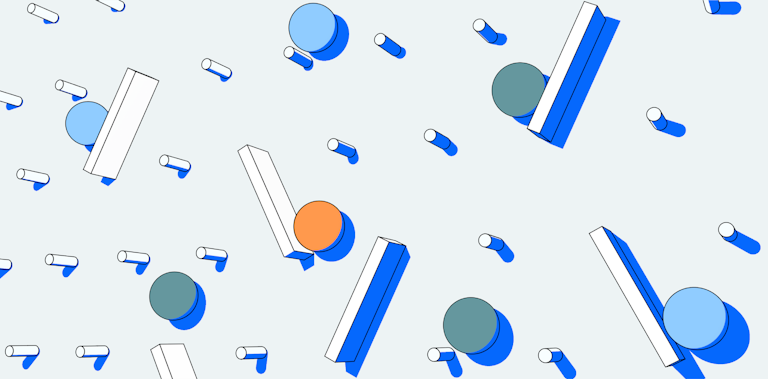
Stay neutral: avoid leading questions
One of the most important points when it comes to any research is being a neutral party, which means removing cognitive bias from your work. Research isn’t helpful if it’s biased, so ensure your questions are as impartial as possible—after all, just because you like Concept A over Concept B, doesn’t mean everyone will.
The key to staying neutral is avoiding leading questions where you subconsciously favor one thing over another, or plant an opinion or idea in the user’s mind, such as “How would you use concept A?”—this assumes they preferred concept A, which they may not have. Instead, try asking which concept they would use, followed by how they would use it.
Take it one question at a time
The majority of us think best when our minds are clear and able to focus on one thing, so avoid bombarding research participants with multiple questions phrased together.
Rather than asking a question like “What did you think about the design, copy and layout of the page?”, ask individually about the design, copy, and layout. Otherwise, you risk users merging their thoughts into one answer, when in fact they may feel very differently about each element.
Of course some questions lend themselves to being combined (e.g., “Which concept did you prefer and why?”), but it’s best to keep things separate when possible, and ask “Why?” in follow up questions, to allow users space to think and form individual answers for each question.
Ask open-ended questions
Similar to ensuring questions are unbiased, it’s also a good idea to ask open-ended questions—that is, to avoid questions which result in simply a ‘yes’ or ‘no’ answer.
The benefit of open-ended questions is that they give participants an opportunity to expand on their answer, work through their experience, and share details with you that may otherwise be missed. Consider that, while asking “Did you like the product?” may answer whether a user liked it, you’ll be left wondering what it is they like about it. Instead, try framing questions in a way that provides space for additional information, e.g. “What did you think about the product?”.
Pro tip ✨ If you do ask closed-ended questions, always keep follow up questions aside to dig deeper gather and extra insight from your participants.
Help users find their own voice
The language we use is incredibly powerful. Used well, words can move us, sway our opinions, educate us, and more.
By helping your research participants to find their own voice, you can unlock powerful statements and user insights which will truly impact your product. Formatting questions with the user at the center—using ‘you’ and asking emotive questions—builds empathy with the user and encourages them to find and share their own opinions through honest answers.
Ask questions you think you know the answer to
Our final question-crafting tip is to use research questions to test and validate your own assumptions and opinions. Ask questions you think you know the answer to—if you believe all users will prefer one new feature over the other, see if you’re right. If you think a certain design element works better on a different page, ask research participants to determine where they prefer it.
As with any research, while you may be user-adjacent, you are not your users. You are the expert in your product; they are the expert in using your product. Trust their opinions, and use their knowledge and experience to confirm your suspicions, or disprove them. Either way, you gain valuable insights.
User research is as effective as the questions you ask
Whether you’re investigating user preferences or conducting usability testing , research is only as effective as the questions you ask—and how you ask them.
Focus on questions that fit your research objectives, phrase your questions in the best way possible, and work to build empathy with your user; you’ll be able to gather valuable insights in no time.
Frequently asked questions and user research questions
What makes a good user research question?
A good research question is open-ended , unbiased , clear , and precise . It helps research participants share their thoughts, feedback, and opinions with researchers, without influencing or limiting their responses.
What type of user research questions are there?
User research questions can broadly be broken down into three categories:
How do you create a user research question?
There are several ways to create a user research question: you can either write your own question, or select premade questions from an existing research question bank.
If you choose to write your own research questions, it’s important to keep them clear and precise above all else—focus on asking questions that encourage users to open up, share additional information, and speak honestly.
Continue Reading
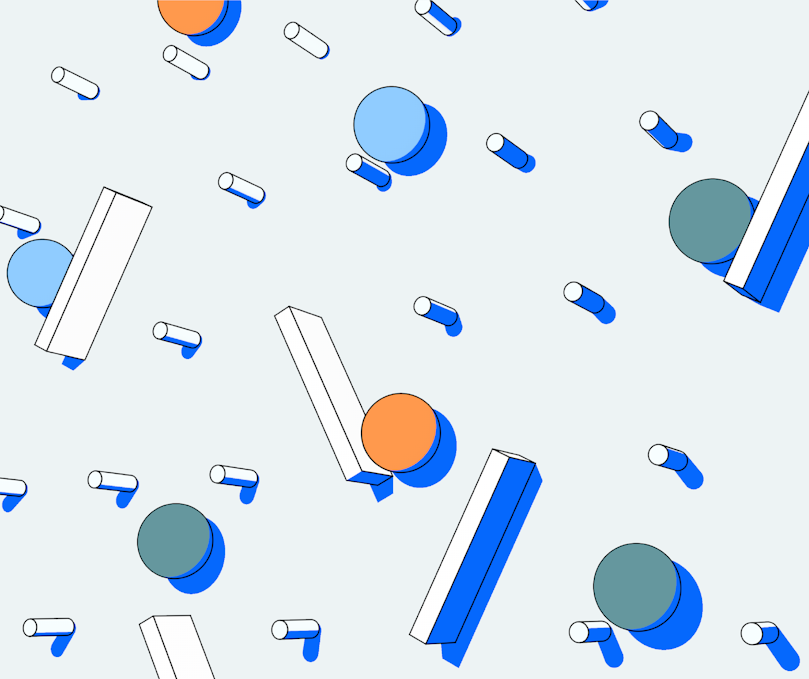
How to avoid leading questions in UX research (+ examples)
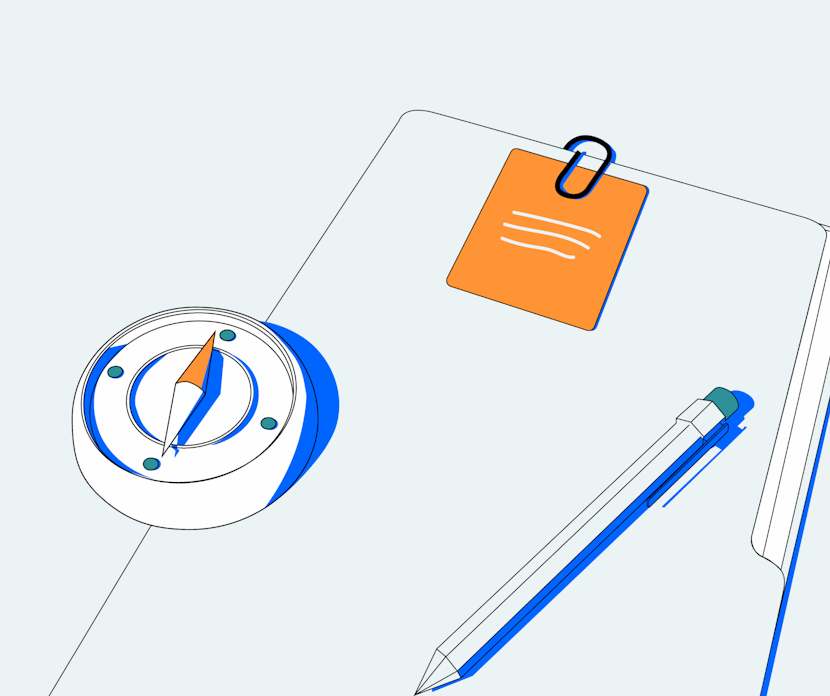
UX research best practices: Building and researching products with ethics in mind
Try rapid testing now, for free.
- Reviews / Why join our community?
- For companies
- Frequently asked questions

Common UX Research Interview Questions
Have you received an interview invitation for the role of UX researcher at your desired organization? If yes, congratulations on this accomplishment!
So, do you have a portfolio? Furthermore, are you prepared to respond effectively to the UX research interview questions ? If you're wondering how to prepare for a UX research job interview , we're here to help!
Answering interview questions goes beyond the standard queries that most interviewees are expected to know. It requires a deep understanding of the field and a mastery of research methodologies and techniques . Let's remember that demonstrating strong problem-solving and critical-thinking skills is equally important.
To stand out and make a lasting impression, it's essential to be well-prepared. Focus on articulating your unique perspective and approach to the challenges of UX research.
- Transcript loading…
- Copyright holder: Unsplash. Copyright terms and license: CCO Public Domain. Link: https://pixabay.com/en/clay-hands-sculpting-art-69...
- Copyright holder: Unsplash. Copyright terms and license: CCO Public Domain. Link: https://www.pexels.com/photo/man-in-black-shirt-an...
- Copyright holder: Indecent Proposer. Copyright terms and license: CC BY-NC 2.0 Link: https://www.flickr.com/photos/indecent_proposal/14...
- Copyright holder: Anna Langova. Copyright terms and license: CC0 1.0 Link: http://www.publicdomainpictures.net/view-image.php...
- Copyright holder: Conmongt. Copyright terms and license: CC0 Public Domain Link: https://pixabay.com/en/hourglass-time-time-lapse-clock-1623517/
(Find out why user research forms the backbone of the design process.)
We will help you understand how to prepare for a UX researcher job interview and ace all UX researcher interview questions . It covers all questions you may have to answer in a UX researcher job interview.
UX Research Background Questions
Did you know the "tell me about yourself" category of UX research interview questions are the ice-breakers?
They have their own importance in an interview. But the questions you will likely face are related to your overall background as a UX researcher.
It will not make a difference if you are starting as a UX researcher or a seasoned one. Answering these questions gives the hiring manager the exact insight to decide whether you can be a good fit for the role. Here are some UX research questions you can expect related to your background:
What motivated you to pursue a career in UX research?
How do you approach a new research project?
What is your biggest strength as a UX researcher?
How do you keep up with industry trends and advancements?
Can you describe a time when you had to handle a problematic stakeholder and how you approached the situation?
How do you handle a situation where the stakeholders have been skeptical about the project research?
What would you consider as your most significant strengths being a UX researcher?
How did you learn about UX research, and what drives you to continue pursuing this career path?
Top Tips to Answer These Background Questions Confidently
Understanding your background is essential for the interviewer to frame the next set of questions. While answering your questions, make sure you follow these tips:
The age-old idiom “Honesty is the best policy” will work in your favor. There are no right or wrong answers here. So, take deep breaths , relax, and share your genuine experience freely.
It’s best not to talk about negative experiences. Even if you had a negative experience, only mention it if it adds value to your answer. If you’re asked to address a negative experience, focus on the positive steps you took to remedy the situation.
Don’t memorize your answers in anticipation. Your experience is personal and unique—express it!
UX Research Decision-Driven Process Questions
As a UX researcher, any company will expect you to deal with complex situations. You need to be able to make sound decisions based on the data gathered during research.
The ability to make the right decision can mean the difference between a successful project and a failed one. Your skills can shine more with your critical thinking, strong problem-solving abilities, and the ability to prioritize tasks.
In this video, CEO of Experience Dynamics Frank Spillers explains how he used a diary study to research the behavior of Apple Watch users:
Understanding the users' needs and expectations will help you make informed decisions that will benefit the end user. Good decision-making skills also allow you to navigate complex projects confidently and efficiently. It helps you to anticipate potential challenges and take proactive measures to overcome them.
Here are some decision-driven UX research interview questions you can expect:
Can you explain how you prioritize research projects based on business needs?
How do you understand the user pain points and balance user needs with business goals during a research project?
Can you describe a time when you had to make a recommendation based on conflicting research insights?
How do you determine the appropriate sample size for a research project?
How do you ensure that research insights are integrated into the product roadmap?
Top Tips to Confidently Answer These Decision-Driven Questions
As a UX researcher, you should make informed decisions as they can make or break the project. Consider the following tips to ace these questions:
The decision-driven process involves making informed decisions that lead to positive outcomes. While answering, please focus on the results and how your research helped achieve them. This will demonstrate your ability to connect research to business goals.
Before answering decision-driven process questions, it's crucial to have a solid understanding of the decision-making process. This will help you identify the relevant factors you must consider and how they relate to the research question.
As these are open-ended questions , you can elaborate on your answers. When answering research questions, use data to support your answers whenever possible. This will demonstrate your ability to analyze and interpret data, as well as your capacity to use data to inform decision-making.
Learn the importance of user research in our post by Ditte Hvas Mortensen – User Research: What It Is and Why You Should Do It .
UX Research Technical Knowledge Questions
As a UX researcher, it's essential to polish your technical knowledge. When preparing for a UX research technical interview , having a solid understanding of technical concepts is helpful. It will allow for more confident and articulate responses.
For instance, knowledge of relevant software can help you explain how you would approach designing a user interface or conducting usability tests. Additionally, understanding technical jargon and practices can assist in communicating effectively with developers and engineers.
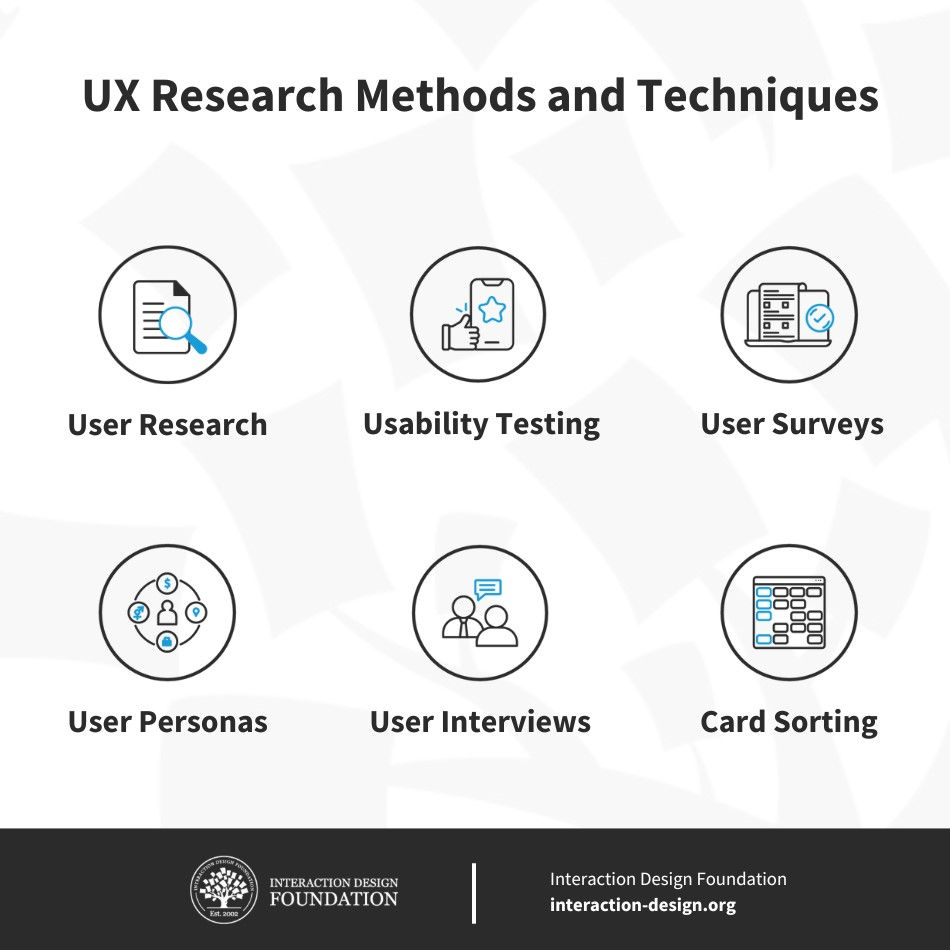
UX Research Methods and Techniques
© Interaction Design Foundation, CC BY-SA 4.0
Follow this simple rule: "Stick to what you know best." Here's a list of technical knowledge UX research questions that you can expect in the interview:
What research methods do you typically use?
Can you walk through your process for conducting a usability test ?
How do you analyze and interpret qualitative data?
How do you ensure your research is unbiased?
Can you explain the difference between behavioral and attitudinal research?
Which tools do you use?
Top Tips to Answer These Technical Knowledge Questions Confidently
Interviewers expect you to have sound technical knowledge. If you don't, revise the basics . Make sure you follow these tips to ace your UX research technical interview :
Focus on the specific technical skills required for the position and be prepared to demonstrate your proficiency in those areas.
Give specific examples of how you have applied your technical skills in past projects or work experiences. This will show the interviewer that you have practical experience and can use your skills in a real-world setting.
Use clear and concise language to explain technical concepts. Avoid using jargon or complex language that may confuse the interviewer.
Highlight the areas you are eager to learn about. Be honest about your technical skills and limitations. It's best not to exaggerate your abilities or pretend to have knowledge you don't have.
UX Research Adaptability Questions
Your portfolio is a valuable asset during the interview process. It serves as a visual representation of your capabilities and showcases the projects and methodologies you have used in the past. It helps the interviewer to understand how quickly you can adapt to constant changes during a project's duration.
Join Steven Gay, UX Lead for Google One, as he shares the power of a portfolio in capturing your design journey and collaboration.
In addition, it can help you to stay organized and focused during an interview. You can easily trace back to your experience when answering complex questions by presenting relevant examples from your previous work.
Sharing real-life examples demonstrating how you have applied your skills and expertise to adapt to challenging situations in specific projects is valuable. This approach makes it easier to address complex questions and showcase your qualifications effectively.
Here are some interview questions for UX researchers related to adaptability:
Can you describe a research project you are particularly proud of and why?
How did you adapt to a situation where the research insights must be aligned with stakeholder expectations?
How do you ensure that research results are actionable and impact the product design ?
Can you describe a time when you had to pivot research strategies mid-project and how you approached the situation?
How have you incorporated user feedback into the product design process?
What is your best experience with any client during the project?
Can you describe your usual process for gathering information before starting any project?
Have you worked on any project that has contributed to a breakthrough for the business?
Top Tips to Answer These Adaptability Questions Confidently
UX research is a rapidly evolving sector. You have to adapt quickly. While answering the UX research interview questions , include these tips to display your adaptability effectively:
Be specific about the research methods you have used, the challenges you faced, and the outcomes you achieved. This will help the interviewer understand your thought process and research approach.
Emphasize the results of your research rather than the research process . Give examples of how your decision-making and adaptability have improved a product or increased user satisfaction.
If you need to gain experience in a particular area, be honest about it. Avoid pretense during the interview. Instead, focus on your skills and how you can apply them to the job.
Finally, show your passion for UX research. Talk about why you love this field and how you can contribute to the company's mission. This will help the interviewer see that you are interested in more than landing a job and want to make a career in UX research .
UX Research Teamwork and Collaboration Questions
Teamwork and collaboration are essential to ensure efficient processes, to see problems from different perspectives, and to get real-time feedback. You'll work closely with other product development , design, and management team members. Here, the goal is to understand the users’ needs to develop effective solutions.
Effective collaboration requires strong communication skills. That means active listening, clear articulation, and the ability to provide constructive feedback. You must be able to conduct user interviews confidently and understand user behavior . Moreover, communicate research findings, insights, and the research plan to team members concisely and in an actionable way.
Learn how team research helps organizations move faster with Laura Klein.
Here are some questions you can expect in the interview related to teamwork and collaboration:
How do you ensure effective communication with team members during a project?
How do you handle disagreements with team members or stakeholders during a project?
Can you describe a time when you had to work with individuals from different departments or teams?
How do you ensure team members are aligned on the research goals and objectives?
Can you describe a time when you had to manage conflicting priorities on a project?
How would you resolve any miscommunication between two stakeholders associated with a project you are leading?
How would you motivate your team members if they are facing a problem?
Can you describe ways of tailoring the project based on different requirements?
Top Tips to Confidently Answer These Collaboration Questions
Collaboration questions aim to gauge your responsibility, ownership, and leadership skills. The interviewer needs to know that you are a team player, how well you apply feedback and also how well you communicate with others.
Highlight your skills by using the following tips:
Show how you can work with others to solve complex problems creatively. Explain how you have tackled challenging research projects in collaboration with team members to find solutions that work for everyone.
The interviewer would want to see that you are enthusiastic about working with others and are committed to creating a positive team environment. Show that your team can rely on you to work effectively towards a common goal.
Use examples of how you have effectively communicated complex research insights to non-technical and technical stakeholders. Show that you are a good communicator, One who can ensure that everyone on the team understands the research findings.
Emphasize your ability to collaborate with people and research participants with different backgrounds, experiences, and perspectives. Give examples of projects where you could work effectively in cross-functional teams and how you overcame any challenges.
UX Research Questions to Ask Your Interviewer
That time of the interview when your interviewer asks, “Any questions for me?” is your final chance to stand out. Most importantly, it's your opportunity to figure out whether the position suits your personality, interests, and qualifications.
Here are some questions to catch your interviewer off-guard (in a good way).
What is the usual approach for your company for a user-centered design , and how does UX research fit into that process?
What software or tools does your organization use for research, design, collaboration, prototyping , etc.?
How does the company ensure that UX research insights are being effectively implemented?
What are the qualities and attributes that can make for a successful UX researcher in the company?
The ice-breaker UX research interview questions still hold their importance. They are basic in nature but helpful in creating that first impression on your interviewer. If you have your technical expertise in place, give equal importance to soft skills as well.
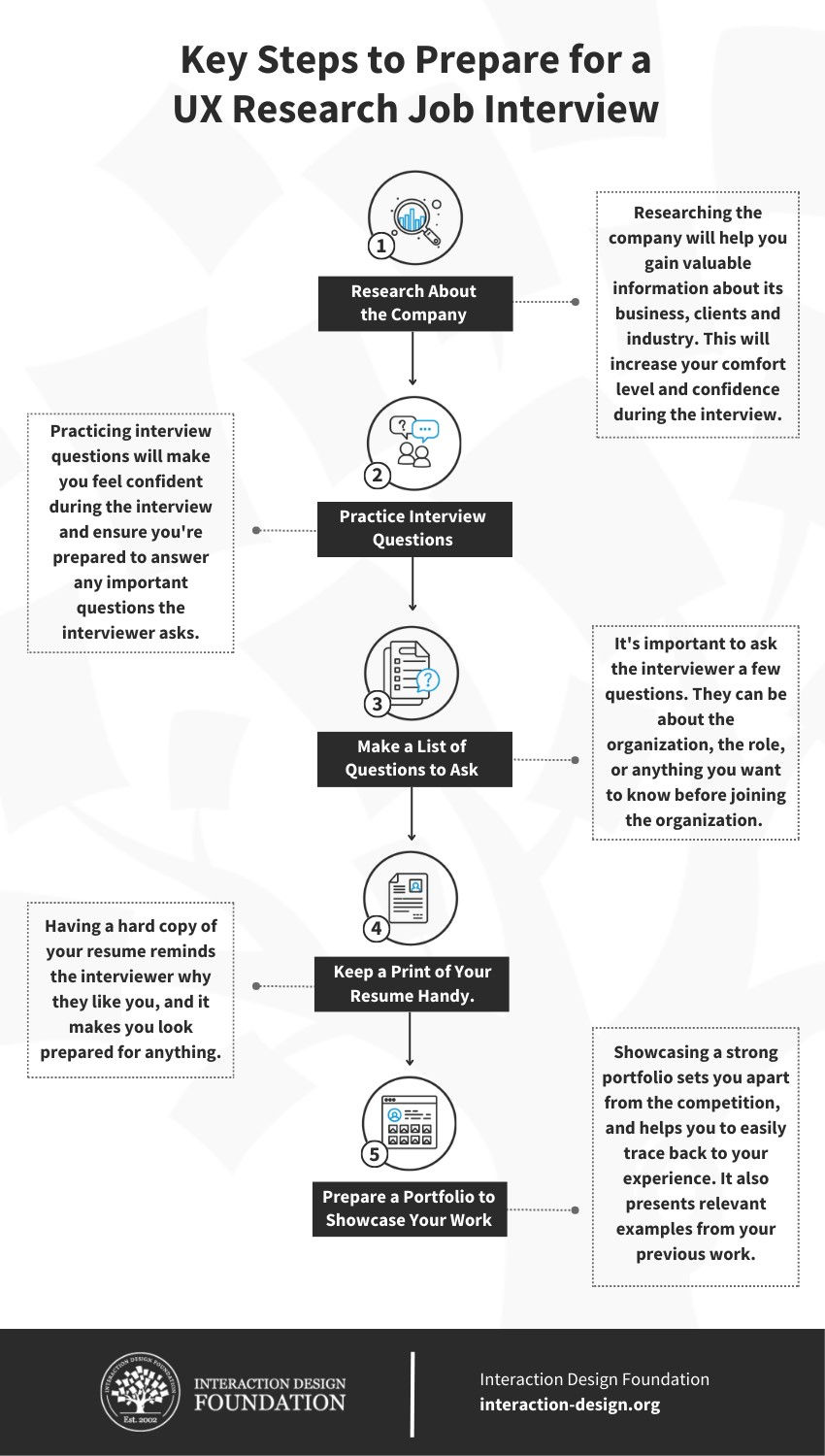
Key Steps to Prepare for a UX Research Job Interview
Moreover, it's good practice to ask your interviewer questions. Try to keep a few questions ready on your end. They can be about the organization, the role, or anything important to you before you decide to join the organization.
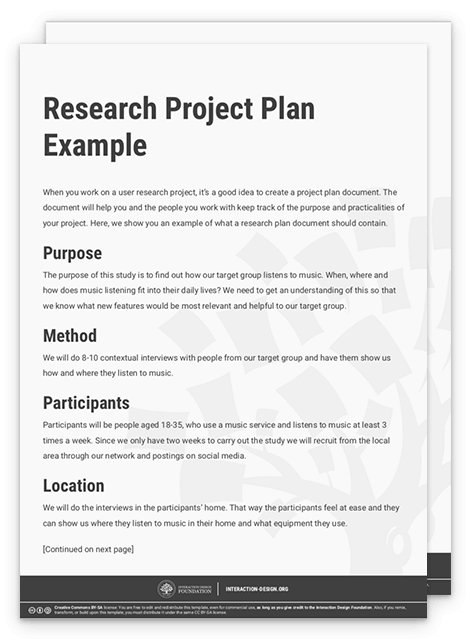
Lastly, it's equally important to highlight your ability to collaborate effectively with team members and stakeholders. But if you need a little extra boost to complete your journey as a UX researcher confidently, take courses offered by the IxDF.
The Interaction Design Foundation offers a range of UX courses that will take your career to the next level. Enroll in one of our UX courses today and unleash your UX superpowers!
Journey Mapping

Get Weekly Design Insights
Topics in this article, what you should read next, apple’s product development process – inside the world’s greatest design organization.

- 1.4k shares
A Simple Introduction to Lean UX
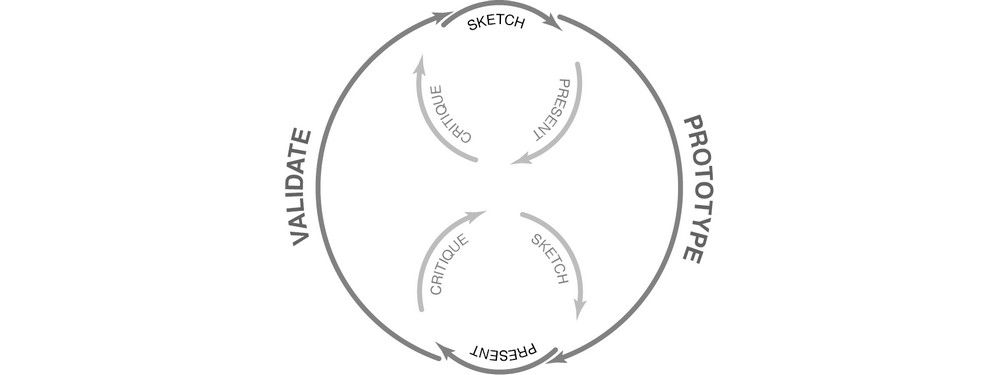
- 1.3k shares
- 3 years ago
How to Do a Thematic Analysis of User Interviews

- 4 years ago
How to Conduct User Interviews

- 1.2k shares
7 Great, Tried and Tested UX Research Techniques

User Research: What It Is and Why You Should Do It
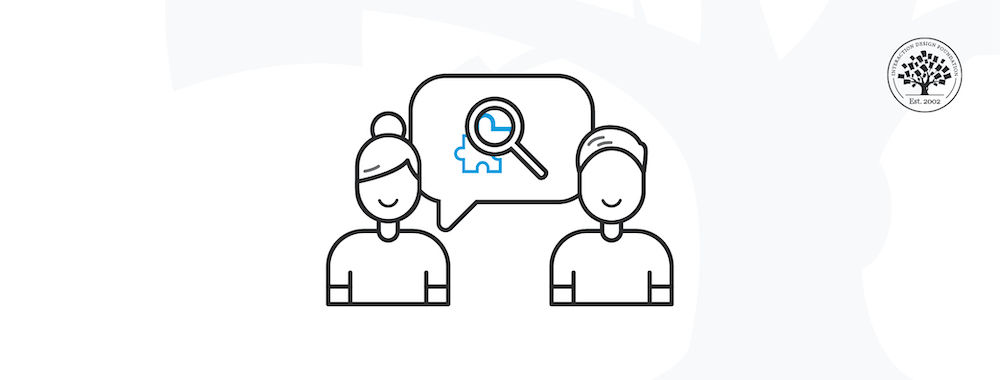
- 1.1k shares
- 2 years ago
The Factors of Success for New Product Development: An Overview

UX Roles: The Ultimate Guide – Who Does What and Which One You Should Go For?
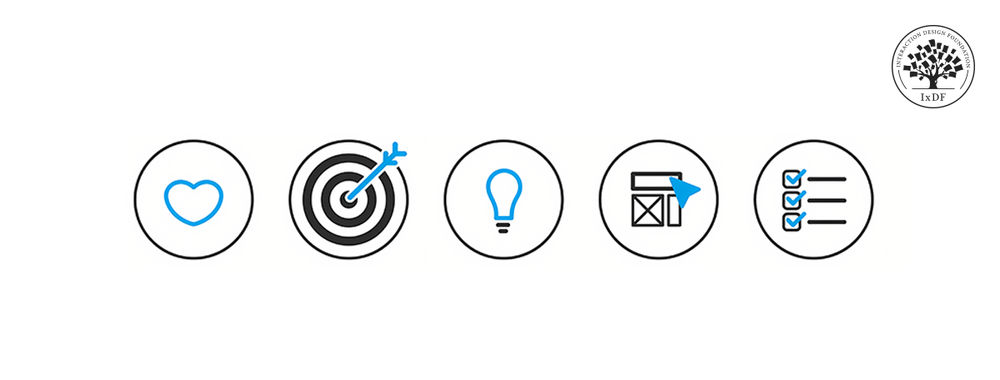
How to Conduct User Observations
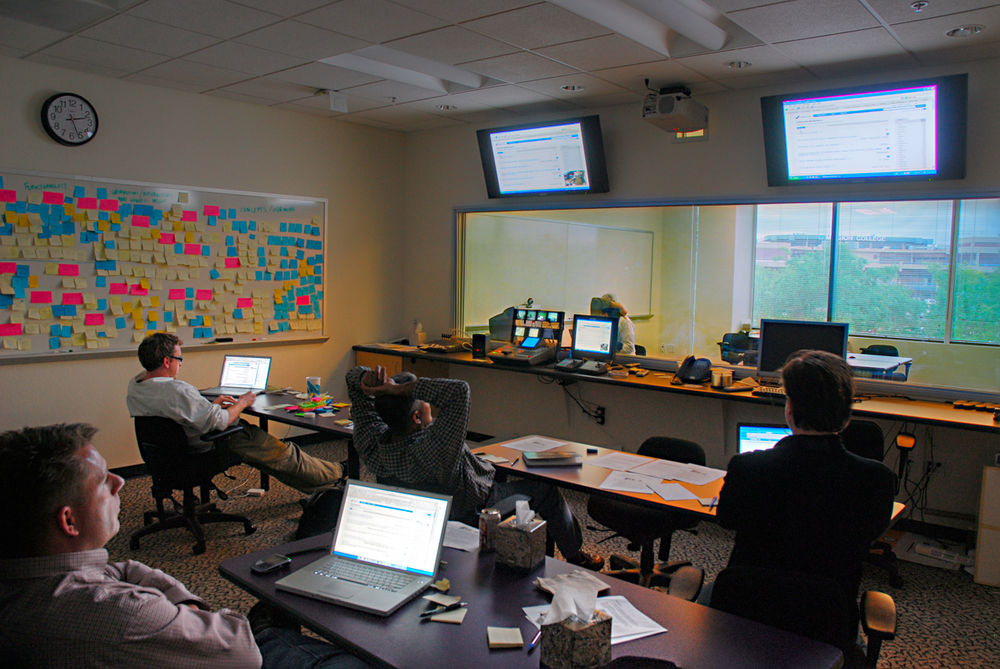
How to Visualize Your Qualitative User Research Results for Maximum Impact
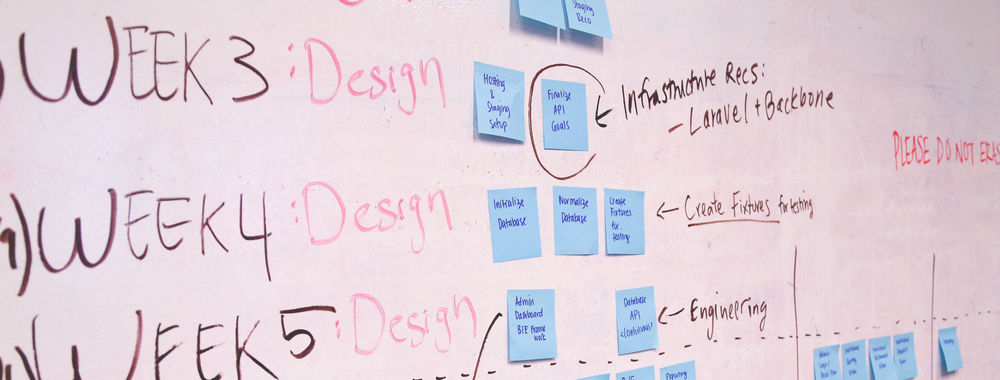
Open Access—Link to us!
We believe in Open Access and the democratization of knowledge . Unfortunately, world-class educational materials such as this page are normally hidden behind paywalls or in expensive textbooks.
If you want this to change , cite this article , link to us, or join us to help us democratize design knowledge !
Privacy Settings
Our digital services use necessary tracking technologies, including third-party cookies, for security, functionality, and to uphold user rights. Optional cookies offer enhanced features, and analytics.
Experience the full potential of our site that remembers your preferences and supports secure sign-in.
Governs the storage of data necessary for maintaining website security, user authentication, and fraud prevention mechanisms.
Enhanced Functionality
Saves your settings and preferences, like your location, for a more personalized experience.
Referral Program
We use cookies to enable our referral program, giving you and your friends discounts.
Error Reporting
We share user ID with Bugsnag and NewRelic to help us track errors and fix issues.
Optimize your experience by allowing us to monitor site usage. You’ll enjoy a smoother, more personalized journey without compromising your privacy.
Analytics Storage
Collects anonymous data on how you navigate and interact, helping us make informed improvements.
Differentiates real visitors from automated bots, ensuring accurate usage data and improving your website experience.
Lets us tailor your digital ads to match your interests, making them more relevant and useful to you.
Advertising Storage
Stores information for better-targeted advertising, enhancing your online ad experience.
Personalization Storage
Permits storing data to personalize content and ads across Google services based on user behavior, enhancing overall user experience.
Advertising Personalization
Allows for content and ad personalization across Google services based on user behavior. This consent enhances user experiences.
Enables personalizing ads based on user data and interactions, allowing for more relevant advertising experiences across Google services.
Receive more relevant advertisements by sharing your interests and behavior with our trusted advertising partners.
Enables better ad targeting and measurement on Meta platforms, making ads you see more relevant.
Allows for improved ad effectiveness and measurement through Meta’s Conversions API, ensuring privacy-compliant data sharing.

LinkedIn Insights
Tracks conversions, retargeting, and web analytics for LinkedIn ad campaigns, enhancing ad relevance and performance.
LinkedIn CAPI
Enhances LinkedIn advertising through server-side event tracking, offering more accurate measurement and personalization.
Google Ads Tag
Tracks ad performance and user engagement, helping deliver ads that are most useful to you.
Share Knowledge, Get Respect!
or copy link
Cite according to academic standards
Simply copy and paste the text below into your bibliographic reference list, onto your blog, or anywhere else. You can also just hyperlink to this article.
New to UX Design? We're Giving You a Free eBook!
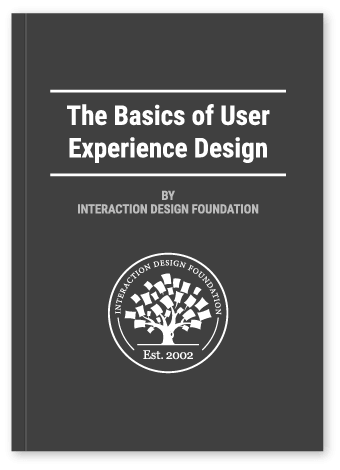
Download our free ebook “ The Basics of User Experience Design ” to learn about core concepts of UX design.
In 9 chapters, we’ll cover: conducting user interviews, design thinking, interaction design, mobile UX design, usability, UX research, and many more!

Try the user interview platform used by modern product teams everywhere
32 UX Research Interview Questions & Answers
Prepare for your next ux research interview with our comprehensive guide covering 32 common questions, expert tips, and proven frameworks to showcase your skills and experience., short on time get instant insights with an ai summary of this post., introduction.
UX research interview questions are a crucial part of the hiring process for user experience professionals. These questions are designed to assess a candidate's skills, experience, and approach to user research, helping employers identify the best fit for their team. For job seekers, these interviews provide an opportunity to showcase their expertise and demonstrate how they can contribute to improving user experiences.
The Importance of UX Research Interviews
UX research interviews serve several vital purposes for both employers and job seekers:
Skill Assessment : These interviews allow employers to evaluate a candidate's technical knowledge, research methodologies, and problem-solving abilities. By asking specific questions about past projects and hypothetical scenarios, interviewers can gauge how well a candidate might perform in real-world situations.
Cultural Fit : Beyond technical skills, UX research interviews help determine if a candidate's values and work style align with the company culture. This is crucial for building cohesive teams that can collaborate effectively.
Experience Validation : For job seekers, these interviews offer a chance to elaborate on their portfolio and resume. They can provide context to their past work, explaining the challenges they faced and the impact of their research on product development.
Industry Knowledge : UX research questions often touch on current trends and best practices in the field. This allows employers to assess a candidate's commitment to staying updated with the latest developments in UX research.
Communication Skills : Effective UX researchers need to be able to communicate complex ideas clearly. The interview process helps evaluate a candidate's ability to articulate their thoughts and present research findings in a compelling manner.
Problem-Solving Approach : Many UX research interview questions are designed to understand how a candidate approaches challenges. This gives insight into their critical thinking skills and adaptability – crucial traits in the ever-evolving field of UX.
Team Dynamics : For employers, these interviews help determine how well a candidate might work within existing team structures. Questions about collaboration and stakeholder management are often included to assess this aspect.
By preparing thoroughly for these interviews, candidates can position themselves as valuable assets to potential employers. Understanding the types of questions that might be asked and practicing articulate, thoughtful responses can significantly boost confidence and performance during the interview process.
For those looking to streamline their UX research process and stay ahead in their careers, tools like Innerview can be invaluable. Innerview offers features such as automatic transcription of user interviews and AI-powered analysis, which can help UX professionals quickly extract insights and identify patterns across multiple interviews. This not only saves time but also demonstrates a candidate's ability to leverage cutting-edge tools in their research practice.
Discover more insights in: How to Conduct Effective Qualitative Interviews: A Comprehensive Guide
10x your insights without 10x'ing your workload
Innerview helps you quickly understand your customers and build products people love.
Common Types of UX Research Interview Questions
Understanding the types of questions you might encounter in a UX research interview can significantly boost your confidence and preparation. Let's explore the common categories of questions you're likely to face:
Background and Experience Questions
These questions aim to understand your journey in UX research and the depth of your experience. Interviewers want to gauge how your past roles and projects have shaped your skills and approach to user research. Examples include:
- "Can you walk us through your most challenging UX research project?"
- "How do you typically approach a new research study?"
- "What research methodologies do you have experience with, and which do you prefer?"
When answering these questions, use the STAR method (Situation, Task, Action, Result) to structure your responses. This approach helps you provide concrete examples that showcase your skills and the impact of your work.
Decision-Making Assessment Questions
UX researchers often need to make critical decisions that can influence product development. Interviewers use these questions to evaluate your decision-making process and problem-solving skills:
- "How do you prioritize research objectives when faced with time constraints?"
- "Describe a situation where your research findings contradicted stakeholder assumptions. How did you handle it?"
- "What factors do you consider when choosing between qualitative and quantitative research methods?"
When responding to these questions, emphasize your analytical skills and ability to balance multiple factors in your decision-making process. Highlight how you use data and insights to drive your choices.
Technical Questions
These questions assess your knowledge of UX research tools, methodologies, and best practices. Be prepared to discuss:
- "What tools do you use for data analysis and why?"
- "How do you ensure the validity and reliability of your research findings?"
- "Can you explain the difference between attitudinal and behavioral research methods?"
Don't just list tools or methods – explain how and why you use them. This demonstrates not only your technical knowledge but also your understanding of when and how to apply different techniques.
Adaptability Questions
The field of UX research is constantly evolving, and employers want to know that you can adapt to new challenges and technologies. Expect questions like:
- "How do you stay updated with the latest trends in UX research?"
- "Describe a time when you had to learn a new research method quickly. How did you approach it?"
- "How would you conduct user research for a product in a domain you're unfamiliar with?"
In your responses, highlight your willingness to learn and your ability to apply your core research skills to new contexts. This is also an excellent opportunity to mention any continuous learning efforts or industry involvement you have.
By preparing for these types of questions, you'll be well-equipped to showcase your expertise and potential value to the organization. Remember, the key is not just to answer the questions, but to use them as opportunities to demonstrate your passion for UX research and your ability to drive meaningful insights that improve user experiences.
For those looking to enhance their UX research capabilities, tools like Innerview can be a game-changer. With features like automatic transcription and AI-powered analysis, Innerview can help you quickly extract insights from user interviews, saving time and allowing you to focus on higher-level analysis and strategy. This kind of efficiency can be a strong talking point in interviews, demonstrating your awareness of cutting-edge tools in the field.
Background and experience questions form a crucial part of any UX research interview. These questions help interviewers understand your journey in the field, assess your expertise, and gauge how well you might fit into their team. Let's explore some common examples and tips to help you ace these questions.
Examples of Background Questions
- "Tell us about your journey into UX research."
- "What was the most impactful project you've worked on, and why?"
- "What research methodologies are you most comfortable with?"
- "Can you describe a time when your research findings significantly influenced a product decision?"
- "What's your process for synthesizing and communicating research insights to stakeholders?"
Tips for Answering Background Questions
Be specific.
When discussing your experience, avoid vague generalizations. Instead, provide concrete examples that showcase your skills and impact. For instance, rather than saying, "I've worked on many user testing projects," you could say, "I led a series of usability tests for a mobile banking app that resulted in a 30% increase in user satisfaction scores."
Highlight Impact
Employers want to know that your research makes a difference. When describing past projects, focus on the outcomes and how your insights influenced product decisions or business strategies. Quantify your impact whenever possible, using metrics like increased user engagement, reduced support tickets, or improved conversion rates.
Showcase Collaboration
UX research often involves working with diverse teams. Highlight your ability to collaborate effectively with designers, product managers, developers, and other stakeholders. Describe how you've facilitated workshops, presented findings, or worked cross-functionally to implement research-driven changes.
Discuss Methodologies
Demonstrate your versatility by discussing various research methodologies you've employed. Explain why you chose specific methods for different projects and how you adapted your approach based on project constraints or objectives. This shows your strategic thinking and flexibility.
If you lack experience in a particular area, it's okay to admit it. However, use this as an opportunity to showcase your eagerness to learn. For example, you might say, "While I haven't conducted eye-tracking studies, I'm fascinated by the insights they can provide and have been reading up on best practices in this area."
Highlight Soft Skills
UX research isn't just about technical skills. Emphasize your soft skills like empathy, communication, and problem-solving. These are crucial for understanding users, presenting insights effectively, and navigating complex organizational dynamics.
Show Continuous Learning
The field of UX research is constantly evolving. Demonstrate your commitment to professional growth by mentioning recent courses, conferences, or books that have influenced your approach. This shows that you're proactive about staying current in the field.
By following these tips, you'll be well-prepared to tackle background and experience questions in your UX research interview. Remember, these questions are your opportunity to tell your professional story and showcase why you're the ideal candidate for the role. Be confident, authentic, and passionate about your work in user experience research.
For those looking to enhance their UX research capabilities and streamline their workflow, tools like Innerview can be invaluable. With features like automatic transcription and AI-powered analysis, Innerview can help researchers quickly extract insights from user interviews, saving time and allowing for deeper, more impactful analysis. This efficiency can be a strong talking point in interviews, demonstrating your awareness of cutting-edge tools in the field and your commitment to delivering high-quality insights efficiently.
Discover more insights in: Mastering User Research: Insights and Strategies for Product Success
Decision-making is a critical skill for UX researchers, and interviewers often use specific questions to assess a candidate's ability to make sound judgments in complex situations. Let's explore some common decision-making assessment questions and provide tips on how to answer them effectively.
Examples of Decision-Making Questions
- "How do you balance user needs with business objectives in your research recommendations?"
- "Can you share an example of a difficult decision you had to make during a research project? What was your thought process?"
Tips for Answering Decision-Driven Research Questions
Think aloud.
When answering decision-making questions, it's crucial to verbalize your thought process. Interviewers are interested not just in your final decision, but in how you arrive at it. Walk them through your reasoning step-by-step, explaining the factors you consider and how you weigh different options.
Reference Past Experiences
Whenever possible, draw on real-life examples from your previous work. This adds credibility to your answers and demonstrates that you've successfully navigated similar situations in the past. Use the STAR method (Situation, Task, Action, Result) to structure your responses and provide concrete examples of your decision-making skills in action.
Emphasize User-Centricity
In UX research, decisions should always be grounded in user needs and behaviors. When discussing your decision-making process, highlight how you prioritize user insights and advocate for user-centered solutions. This shows that you understand the core principles of UX and can make decisions that truly benefit the end-users.
Consider Business Objectives
While user needs are paramount, it's also important to demonstrate that you understand the broader business context. Show how you balance user requirements with organizational goals, resource constraints, and stakeholder expectations. This illustrates your ability to make pragmatic decisions that align with both user needs and business objectives.
Data-Informed Decisions
Emphasize your commitment to making data-informed decisions. Discuss how you gather, analyze, and interpret data to support your decision-making process. This could include quantitative metrics, qualitative insights, or a combination of both. Showing that you base your decisions on solid evidence rather than assumptions or personal preferences is crucial.
Discuss Collaboration
UX research often involves working with cross-functional teams. When answering decision-making questions, highlight how you collaborate with others, seek diverse perspectives, and build consensus. Describe situations where you've facilitated decision-making workshops or used collaborative techniques to arrive at the best solution.
Acknowledge Trade-offs
In many UX research scenarios, there's no perfect solution. Demonstrating your ability to recognize and navigate trade-offs is essential. Discuss how you weigh pros and cons, assess risks, and make informed compromises when necessary. This shows maturity in your decision-making process and an understanding of the complexities involved in UX research.
By following these tips, you'll be well-equipped to tackle decision-making assessment questions in your UX research interview. Remember, the key is to demonstrate a thoughtful, user-centered approach that balances multiple factors and leads to informed, impactful decisions.
For UX researchers looking to enhance their decision-making capabilities, tools like Innerview can be invaluable. By providing AI-powered analysis of user interviews and customizable views for identifying patterns across multiple transcripts, Innerview enables researchers to make data-driven decisions more efficiently. This can be particularly useful when faced with time constraints or when dealing with large volumes of qualitative data, allowing researchers to quickly extract key insights and make informed recommendations.
Technical questions are a crucial component of UX research interviews, designed to assess your knowledge of tools, methodologies, and best practices in the field. These questions help interviewers gauge your technical proficiency and understanding of UX research principles. Let's explore some examples and tips to help you ace this part of the interview.
Examples of Technical Questions
- "What's your approach to creating effective user personas?"
- "How do you design and conduct A/B tests?"
- "What methods do you use to analyze qualitative data from user interviews?"
- "How do you calculate statistical significance in quantitative studies?"
Tips for Answering Process and Technical Knowledge Questions
When discussing tools or methodologies, don't just name-drop. Explain why you prefer certain tools and how they contribute to your research process. For example, instead of simply saying "I use Figma for prototyping," you could elaborate: "I prefer Figma for prototyping because its collaborative features allow for real-time feedback from stakeholders, which streamlines our iterative design process."
Use Real-World Examples
Whenever possible, illustrate your technical knowledge with examples from your past projects. This not only demonstrates your practical experience but also shows how you apply theoretical concepts in real-world scenarios. For instance, when explaining how you ensure research validity, you might describe a specific project where you implemented triangulation methods to cross-verify findings from different data sources.
Explain Your Process
Interviewers are often more interested in your thought process than in a textbook-perfect answer. When asked about your approach to a particular research method, walk them through your step-by-step process. This showcases your critical thinking skills and your ability to adapt methodologies to specific project needs.
Highlight Continuous Learning
The field of UX research is constantly evolving, with new tools and methodologies emerging regularly. Demonstrate your commitment to staying current by mentioning recent learning experiences or certifications. This shows initiative and adaptability, both highly valued traits in UX researchers.
Showcase Problem-Solving Skills
Technical questions often have an underlying goal of assessing your problem-solving abilities. When discussing challenges you've faced with research tools or methodologies, focus on how you overcame these obstacles. This demonstrates your resourcefulness and ability to find solutions in complex situations.
Speak the Language
Use industry-specific terminology accurately to demonstrate your familiarity with UX research concepts. However, be prepared to explain these terms in simpler language if asked, as this shows your ability to communicate complex ideas to non-technical stakeholders.
Prepare in Advance
While you can't predict every technical question, you can prepare for common topics. Review fundamental UX research concepts, brush up on statistical methods, and be ready to discuss the pros and cons of various research tools and methodologies. This preparation will boost your confidence and help you provide more thoughtful, comprehensive answers during the interview.
By following these tips, you'll be well-equipped to handle technical questions in your UX research interview. Remember, the goal is not just to demonstrate your knowledge but also to show how you apply that knowledge to drive meaningful insights and improve user experiences.
For UX researchers looking to enhance their technical capabilities, especially in the realm of qualitative data analysis, tools like Innerview can be a game-changer. With features like AI-powered analysis and customizable views for identifying patterns across multiple transcripts, Innerview enables researchers to quickly extract key insights from large volumes of qualitative data. This can be particularly useful when discussing your approach to analyzing user interviews or synthesizing findings from multiple research sessions.
Adaptability is a crucial skill in the ever-evolving field of UX research. Interviewers often use specific questions to assess a candidate's ability to adapt to new challenges, technologies, and methodologies. Let's explore some common adaptability questions and provide tips on how to answer them effectively.
Examples of Adaptability Questions
- "Tell us about a situation where you had to adjust your research approach mid-project. What prompted the change, and how did you handle it?"
- "How do you balance the need for rigorous research with tight project deadlines?"
- "What strategies do you use to adapt your communication style when presenting findings to different stakeholders?"
Tips for Answering Adaptability Questions
Highlight problem-solving skills.
When answering adaptability questions, focus on your problem-solving abilities. Describe how you approach new challenges systematically, breaking them down into manageable steps. For example, if asked about researching an unfamiliar domain, you might explain your process of conducting preliminary research, consulting subject matter experts, and gradually building your knowledge base.
Show Flexibility
Demonstrate your willingness to step out of your comfort zone and embrace new approaches. Share examples of times when you've successfully adapted to unexpected changes or learned new skills on the fly. This could include picking up a new research tool, adjusting to remote user testing during the pandemic, or integrating emerging technologies like VR into your research methods.
Emphasize Collaboration
Adaptability often involves working with others to navigate new territories. Highlight your ability to collaborate with team members, stakeholders, and experts from various fields. Describe situations where you've sought input from others or worked cross-functionally to tackle unfamiliar challenges.
Communicate Proactively
Explain how you keep stakeholders informed during periods of change or uncertainty. Emphasize your ability to clearly communicate the reasons behind any shifts in your research approach and how you ensure everyone stays aligned with the project goals.
Show Resilience
Adaptability isn't just about change—it's also about bouncing back from setbacks. Share examples of how you've persevered through difficult situations, learned from failures, and used those experiences to improve your research practices.
Demonstrate Empathy
In UX research, adaptability often means adjusting your approach to better understand diverse user groups. Highlight your ability to empathize with users from different backgrounds or with varying needs, and how this empathy informs your adaptable research strategies.
By incorporating these tips into your responses, you'll demonstrate not only your adaptability but also your readiness to thrive in the dynamic field of UX research. Remember, the key is to provide concrete examples that illustrate your flexible mindset and your ability to drive meaningful insights even in unfamiliar or challenging situations.
For UX researchers looking to enhance their adaptability and efficiency, tools like Innerview can be invaluable. With features like AI-powered analysis and customizable views for identifying patterns across multiple transcripts, Innerview enables researchers to quickly adapt their approach based on emerging insights. This can be particularly useful when faced with tight deadlines or when exploring new research domains, allowing researchers to rapidly extract key themes and adjust their focus as needed.
Frameworks for Crafting Effective Interview Answers
When preparing for a UX research interview, having a solid framework for crafting your answers can make a significant difference. These frameworks not only help you structure your responses but also ensure you're providing comprehensive, relevant information that showcases your skills and experience. Let's explore three powerful frameworks that can elevate your interview performance: the STAR Method, the CAR Method, and the METEOR Method.
The STAR Method
The STAR method is a classic approach to answering behavioral interview questions. It stands for Situation, Task, Action, and Result. This framework helps you tell a compelling story about your experience while highlighting your problem-solving skills and impact.
Here's how to use the STAR method:
Situation : Set the scene by describing the context of your example. What was the project? What challenges were you facing?
Task : Explain your specific role or responsibility in the situation. What were you tasked with accomplishing?
Action : Detail the steps you took to address the challenge or complete the task. Focus on your individual contributions and decision-making process.
Result : Share the outcomes of your actions. Quantify the results if possible and explain how your work made a difference.
For example, when asked about a time you had to adapt your research methodology, you might respond:
"(Situation) During a recent project for a mobile banking app, we faced unexpected budget cuts that limited our ability to conduct in-person usability testing. (Task) As the lead UX researcher, I needed to find a way to gather valuable user insights within these new constraints. (Action) I proposed and implemented a remote unmoderated usability testing approach using a tool that allowed us to capture user interactions and feedback asynchronously. I carefully designed tasks that would yield the most critical insights and created a post-test survey to gather additional qualitative data. (Result) This adaptive approach allowed us to test with 50% more participants than our original plan, leading to a broader range of insights. The development team was able to address 15 key usability issues before launch, resulting in a 30% increase in user satisfaction scores compared to the previous version of the app."
The CAR Method
The CAR method is similar to STAR but with a slightly different focus. It stands for Context, Action, and Result. This framework is particularly useful for highlighting your problem-solving skills and adaptability.
Here's how to apply the CAR method:
Context : Describe the situation and any relevant background information. What was the challenge or opportunity you faced?
Action : Explain the specific steps you took to address the situation. Focus on your decision-making process and how you leveraged your skills and experience.
Result : Share the outcomes of your actions, emphasizing the impact and any lessons learned.
For instance, when discussing how you handle conflicting stakeholder opinions:
"(Context) In a recent project redesigning a healthcare portal, we had conflicting opinions between the marketing team, who wanted to prioritize promotional content, and the medical team, who emphasized the importance of easy access to patient information. (Action) To resolve this, I organized a collaborative workshop where both teams could voice their concerns. I then conducted a card sorting exercise with actual users to understand their priorities when using the portal. Using this data, I created a heat map showing user preferences and presented it to both teams. (Result) This evidence-based approach helped us reach a compromise where critical patient information was prominently displayed, with strategically placed promotional content that didn't interfere with the user's primary tasks. The final design saw a 40% increase in user engagement and positive feedback from both internal teams."
The METEOR Method
The METEOR method is a more comprehensive framework that can be particularly effective for UX research interviews. It stands for Motivation, Expertise, Technique, Example, Outcome, and Reflection.
Here's how to use the METEOR method:
Motivation : Explain why you chose to approach the situation in a particular way. What drove your decision-making?
Expertise : Highlight the skills and knowledge you brought to the table. How did your background influence your approach?
Technique : Describe the specific methods or tools you used. Why were these the best choices for the situation?
Example : Provide a concrete example of how you applied your expertise and techniques.
Outcome : Share the results of your actions, focusing on both quantitative and qualitative impacts.
Reflection : Discuss what you learned from the experience and how it has informed your approach to similar situations since.
For example, when asked about your approach to balancing user needs with business objectives:
"(Motivation) In a recent project for an e-commerce platform, I was driven by the need to improve the checkout process to reduce cart abandonment while also meeting the business goal of increasing average order value. (Expertise) I leveraged my background in behavioral economics and UX research to design a study that would uncover both user pain points and opportunities for upselling. (Technique) I employed a mixed-methods approach, combining quantitative funnel analysis with qualitative user interviews and a series of A/B tests. (Example) One key finding was that users were abandoning carts due to unexpected shipping costs. We tested various ways of presenting shipping information earlier in the process, including a dynamic shipping calculator on the product page. (Outcome) The winning variation reduced cart abandonment by 15% and, surprisingly, also led to a 5% increase in average order value as users were more likely to add items to reach free shipping thresholds. (Reflection) This experience reinforced the importance of aligning user needs with business goals and showed me the power of iterative testing in finding win-win solutions."
By mastering these frameworks, you'll be well-equipped to provide structured, compelling answers in your UX research interviews. Remember to practice applying these methods to various scenarios from your experience. This preparation will help you confidently showcase your skills and demonstrate your value as a UX researcher.
For UX researchers looking to enhance their interview performance and streamline their research process, tools like Innerview can be invaluable. With features like AI-powered analysis and customizable views for identifying patterns across multiple transcripts, Innerview enables researchers to quickly extract key insights and themes from user interviews. This can be particularly useful when preparing examples for interview questions, allowing you to easily recall and articulate the impact of your past research projects.
Discover more insights in: Mastering Focus Groups: A Comprehensive Guide to Effective Customer Research
Preparing for Your UX Research Interview
Preparing for a UX research interview can be a daunting task, but with the right approach, you can boost your confidence and increase your chances of success. Here are some key strategies to help you ace your next UX research interview:
Review and Practice Common Questions
One of the most effective ways to prepare for your interview is to familiarize yourself with common UX research questions. Start by compiling a list of frequently asked questions in the field, including those about your background, decision-making process, technical skills, and adaptability. Then, practice answering these questions out loud, either by yourself or with a friend or mentor.
As you practice, focus on crafting clear, concise responses that highlight your experience and skills. Pay attention to your tone and body language, aiming for a confident and enthusiastic demeanor. Remember, the goal isn't to memorize scripted answers, but to become comfortable discussing your experiences and thought processes.
Choose Appropriate Frameworks for Your Answers
Utilizing structured frameworks can help you provide comprehensive and impactful answers during your interview. The STAR (Situation, Task, Action, Result) method is particularly effective for behavioral questions. For example, when asked about a challenging project, you might say:
"In my previous role, we faced a tight deadline for launching a new feature (Situation). As the lead researcher, I needed to gather user insights quickly to inform the design (Task). I implemented a rapid remote testing protocol, combining short user interviews with prototype testing (Action). This approach allowed us to identify and address key usability issues, resulting in a successful launch and a 20% increase in user engagement within the first month (Result)."
Prepare a Portfolio of Your Work
Having a well-organized portfolio of your past projects can significantly strengthen your interview performance. Include a diverse range of projects that showcase your skills in various research methodologies, from usability testing to ethnographic studies. For each project, be prepared to discuss:
- The research objectives and methodologies used
- Challenges you faced and how you overcame them
- Key insights uncovered and their impact on the product
- How you communicated findings to stakeholders
Consider creating a digital portfolio that you can easily share during remote interviews. This visual aid can help you articulate your experiences more effectively and leave a lasting impression on your interviewers.
Practice Active Listening
Active listening is a crucial skill for UX researchers, both in conducting user interviews and in navigating job interviews. During your interview, make sure to:
- Pay close attention to the questions asked
- Ask for clarification if needed
- Provide relevant and focused answers
- Show engagement through appropriate non-verbal cues
By demonstrating strong listening skills, you'll not only answer questions more effectively but also showcase an essential quality for successful UX researchers.
Stay Calm and Take Your Time
Interviews can be nerve-wracking, but it's important to remain calm and composed. If you need a moment to gather your thoughts before answering a question, it's perfectly acceptable to say, "That's a great question. Let me think about that for a moment." This approach is far better than rushing into an answer you haven't fully considered.
Remember to breathe deeply and speak at a measured pace. If you make a mistake or want to add something to a previous answer, it's okay to circle back and provide additional information. Interviewers appreciate candidates who can reflect on their responses and offer thoughtful insights.
By implementing these strategies, you'll be well-prepared to showcase your skills, experience, and passion for UX research during your interview. Remember, the interview is not just about demonstrating your technical knowledge, but also about showing your ability to think critically, communicate effectively, and adapt to new challenges – all crucial skills for a successful UX researcher.
Preparing for a UX research interview is more than just rehearsing answers to common questions. It's about cultivating a mindset that showcases your expertise, adaptability, and passion for improving user experiences. As we wrap up this comprehensive guide, let's recap the key strategies that can set you apart in your next UX research interview.
The Power of Preparation
There's no substitute for thorough preparation. By familiarizing yourself with common interview questions and practicing your responses, you build confidence and clarity in articulating your experiences and skills. Remember, the goal isn't to memorize scripted answers but to become comfortable discussing your approach to UX research challenges.
Leverage frameworks like STAR (Situation, Task, Action, Result) or METEOR (Motivation, Expertise, Technique, Example, Outcome, Reflection) to structure your responses. These methods help you provide comprehensive, impactful answers that highlight your problem-solving skills and the value you bring to a UX research role.
Showcasing Your Expertise
Your portfolio is a powerful tool in demonstrating your capabilities. Curate a selection of projects that highlight your diverse skill set, from conducting user interviews to analyzing complex data sets. Be prepared to discuss not just the outcomes of your research but also your decision-making process, the challenges you faced, and how you adapted your approach to achieve meaningful results.
Embracing Continuous Learning
The field of UX research is constantly evolving, with new methodologies and tools emerging regularly. Demonstrate your commitment to professional growth by staying informed about industry trends and best practices. This could involve discussing recent conferences you've attended, courses you've taken, or how you've implemented new techniques in your work.
Effective Communication is Key
Remember, UX research is as much about communication as it is about gathering insights. Practice articulating complex ideas in clear, concise language. Be prepared to explain your research methodologies and findings to both technical and non-technical stakeholders. This skill is crucial in demonstrating how you can drive product decisions through your research.
Cultivating Adaptability
In today's fast-paced tech environment, adaptability is a prized trait. Be ready to discuss instances where you've had to pivot your research approach or learn new tools quickly. Highlight your problem-solving skills and your ability to thrive in ambiguous or challenging situations.
The Human Element
While technical skills are important, don't underestimate the power of soft skills. Empathy, active listening, and collaboration are fundamental to successful UX research. During your interview, demonstrate these qualities through your interactions with the interviewer and in the examples you share from your past experiences.
By focusing on these areas, you'll not only be well-prepared for your UX research interview but also position yourself as a valuable asset to any UX team. Remember, each interview is an opportunity to learn and grow, regardless of the outcome. Approach it with curiosity and enthusiasm, and let your passion for improving user experiences shine through.
As you continue to hone your skills and prepare for interviews, consider leveraging tools that can enhance your UX research capabilities. For instance, platforms like Innerview offer features such as automatic transcription and AI-powered analysis, which can significantly streamline the research process and allow you to focus on extracting deeper insights. Familiarity with such cutting-edge tools can demonstrate your commitment to efficiency and innovation in your UX research practice.
In conclusion, success in UX research interviews comes from a combination of thorough preparation, clear communication of your experiences and skills, and a genuine passion for understanding and improving user experiences. By applying the strategies and insights shared in this guide, you'll be well-equipped to showcase your unique value and land your dream role in UX research. Good luck!
Similar Posts
User research best practices: driving product innovation.
Discover essential user research strategies to drive product innovation and success. Learn about continuous discovery, AI integration, and creating actionable insights for your product team.
Mastering Qualitative Interviews: Tips, Techniques, and Best Practices (2024)
Learn how to conduct impactful qualitative interviews with our comprehensive guide. Discover expert tips on participant selection, interview techniques, data analysis, and overcoming common challenges.
How to Conduct Effective Focus Groups for Customer Research
Learn how to conduct effective focus groups for customer research. Our comprehensive guide covers preparation, execution, and analysis to help you gather valuable insights for your business.
User Onboarding Guide: Boost Adoption, Engagement & Retention
Discover the essentials of user onboarding, its benefits, key metrics, and best practices. Learn how to create an effective onboarding process that boosts user adoption, engagement, and retention.
Design Research Guide: Methods, Benefits, and Best Practices for UX
Discover the essentials of design research in UX. Learn methods, benefits, and when to conduct research to create user-centered products and boost ROI.
Contextual Inquiry: Definition, Principles, and Best Practices
Discover the power of contextual inquiry in user research. Learn about its principles, benefits, and how to conduct effective studies to improve your products and services.
User Research Guide 2024: Methods, Benefits & Best Practices
Discover everything you need to know about user research in 2024. Learn about different research methods, key benefits, and best practices to improve your products and user experience.
UX Research Plan Guide 2024: Steps, Benefits & Best Practices
Learn how to create a comprehensive UX research plan for 2024. Discover key steps, benefits, and best practices to align stakeholders and drive impactful user experience improvements.
Scannability in UX Design: Boost User Engagement
Learn how to enhance scannability in UX design to boost user engagement. Discover key techniques like visual hierarchy, white space, and content formatting to create a seamless user experience.
Related Topics
Innerview Team
Easy insights, easy progress.
@InnerviewCo

Try Innerview
(psst... for free!)
Transform user interviews into actionable takeaways & faster decisions
- Portfolio Tips
- Career Tips
- Portfolio Examples
- Get UXfolio!
33 UX Researcher Interview Questions Worth Preparing For

Asking good questions is second nature to you, as a UX researcher. But how about answering them? You can alleviate a great deal of anxiety about your upcoming job interview by preparing for it.
The good news is that if you’ve made a UX research portfolio , your preparation is halfway done because you’ve reflected enough on your past projects. All that’s left to do is to organize your thoughts around the most common UX designer interview questions:

4 categories of common UX researcher interview questions
To make it easier for you, we’ve divided the interview questions into 4 categories. You’ll see that there’s some overlap, as some questions could be added to more than one of these categories
- General questions about UX research,
- Career-related questions,
- Experience-related questions, and
- Skill-related and technical questions.
1. General questions about UX research
After the usual rounds/warmup question, most interviews move on to general UX-related topics. These questions are rather broad and they provide a glimpse into your mindset and mentality towards UX.
The thing is, many of us in the industry understand what UX stands for. However, when faced with the task to give definitions, we tend to struggle. This can be a problem in real-world scenarios when you need to convince stakeholders about the importance and potential of your work.
The goal here is to get your facts and thoughts straight so you can give clear and coherent answers. But don’t mistake this for learning robotic, bookish answers! Quite the contrary: you should allow yourself some freedom so your interviewers can get a feel of your personality and willingness to think for yourself.
- How would you define UX?
- Describe the value of UX!
- How would you explain the UX research process?
- What is the place of research in UX design?
- What defines a good UX researcher?
- What are the most important skills of a UX researcher?
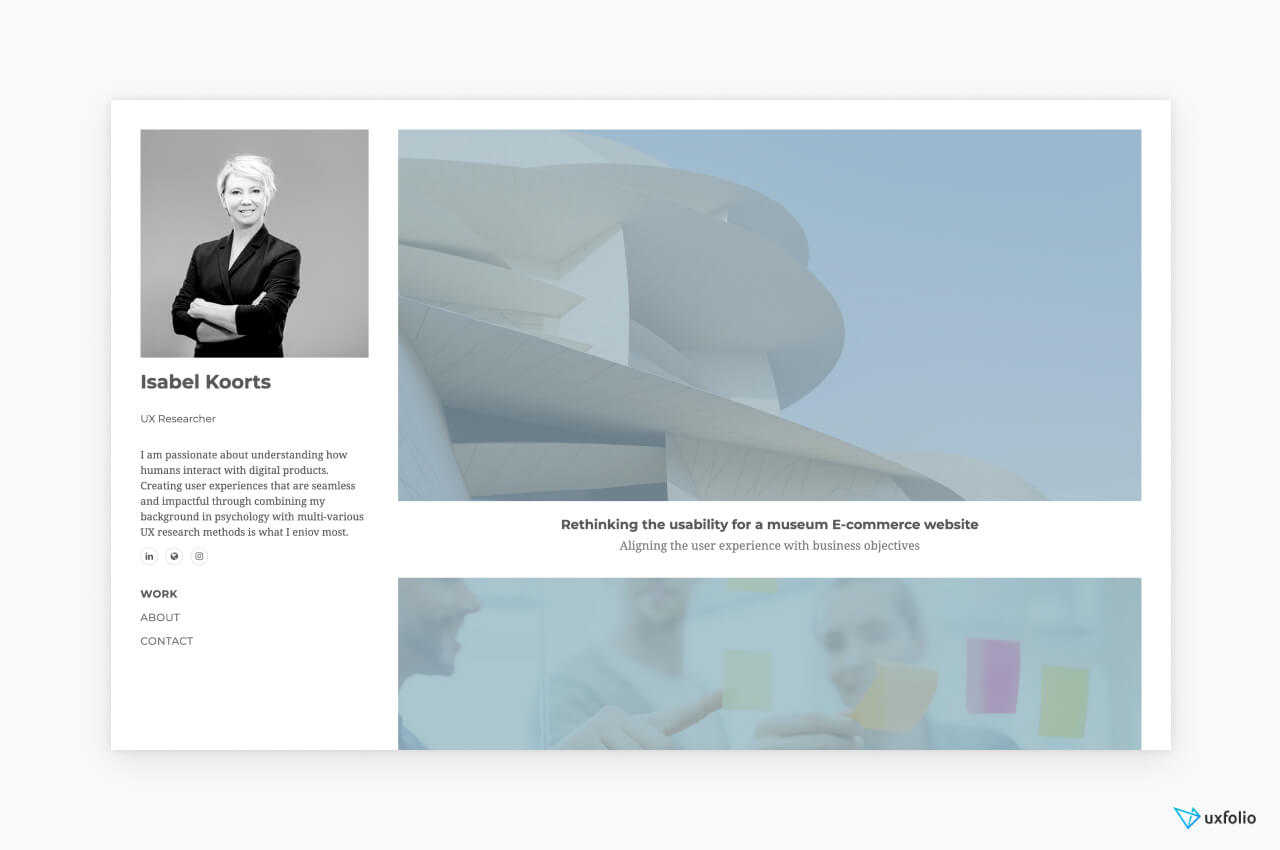
2. Career-related questions
Being passionate about UX research is just as important to your employer as it is to you. And nothing is more revealing in this regard than the way you express yourself when talking about your profession. It’s not just what you say, but your body language, tone, and facial expression. The whole room can sense it when someone talks with excitement.
We know that under the pressure of the interview situation, it’s easy to become tense and withdrawn. But you have to remind yourself to let go a bit, so your interviewers can see the real you. The good thing is that by preparing, you’ll be way less stressed.
Regarding answers to such questions, when for example your interviewer asks you about the publications you follow, what they want is to see if you can name a few off the bat, proving that you’re dedicated enough to follow the advancements in your field.
If you’re dedicated to UX you’ll have it easy. If you’re not, well, just prepare your answers.
- How did you become a UX researcher? Did you study UX, or did you convert from another discipline?
- Why did you choose UX research as your career?
- What are some of the biggest challenges you have faced/are facing as a UX researcher?
- What was your favorite project that you’ve ever worked on?
- What’s your greatest weakness as mentioned to you by a manager or client?
- Where do you see yourself in 5 years?
- How do you handle it when people are skeptical of the value of usability research?
3. Experience-related questions
Experience-related questions reveal what type of a workmate you are, how do you approach unexpected obstacles, how do you communicate research findings, what are your positive and negative characteristics, and so on. Such questions tend to include a prompt to share a relevant real-life example.
This is why writing case studies for your portfolio is such a helpful thing: it forces you to think about the details of your projects. All those details will come in handy when you’re prompted to relate back to past experiences.
- What’s an example of a difficult decision you’ve had to make as a researcher?
- How do you communicate your findings to stakeholders?
- What’s your process for working with designers and product managers?
- What do you do if you disagree with a product manager or teammate?
- Tell us about a UX research project that didn’t go as planned. How did you manage it?
- Tell us about your most successful project!
- Tell us about the project that makes you the proudest!
- What was an unexpected insight or finding that you had from a recent project?
- What general questions would you ask at the beginning of a project?
- Tell us about a research finding that contributed to the solution of a business problem.
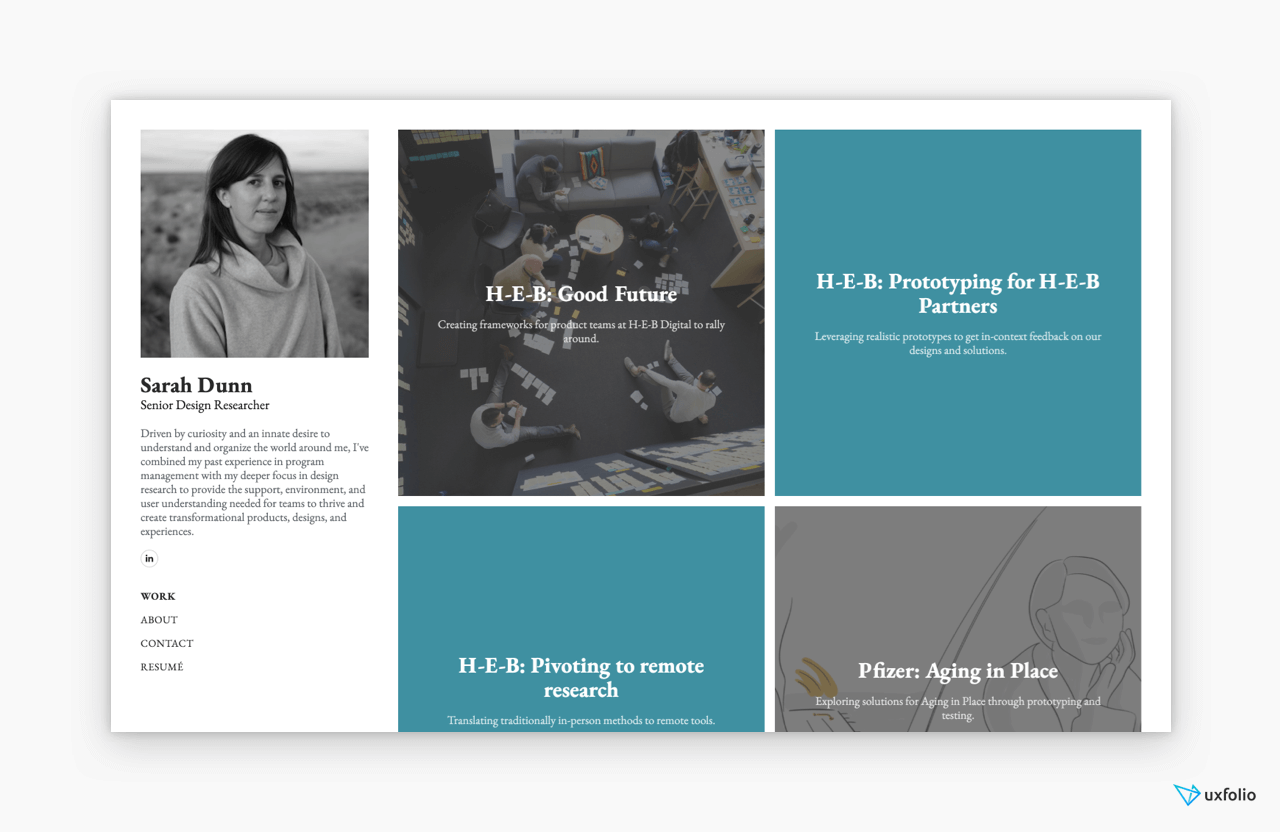
4. Skill-related and technical questions
By the time you’re at the interview, your portfolio has already revealed many of your skills to those involved. Now, it’s time to show that you can talk about your skills and achievements in person too.
This is the shakiest category of UX researcher interview questions as many companies will ask very specific things to find out out about what is of high importance for them. But then again, if you’ve put together a few case studies, reflecting on your previous projects, you don’t have much to worry about.
In this category, you should continue providing examples if you want to make an impact. Knowing theory is a great thing, but it’s even better if you know how to apply it in practice to achieve product goals and business objectives.
- What is your best skill as a UX researcher and what advice would you give to someone who is trying to acquire this skill?
- Describe the type of research methods you prefer to use.
- What would you consider to be your main methods of expertise?
- How would you adjust user interviews if you were trying to test a particular interaction?
- How do you know that your findings or research have made an impact?
- If you had two products and had to ask one question of users to determine which they preferred more, what would you ask?
- How do you know if you are asking the right research questions for a project?
- What do you do if neither of the design options given to you for usability testing was successful?
- Describe a recent research project that produced lots of data. How did you go about analyzing the data and how did you derive findings and recommendations for the team and stakeholders?
- How do you design a research study for a new or concept product that participants may not fully understand?
- Pick a favorite app. Tell us how you’d evaluate it?
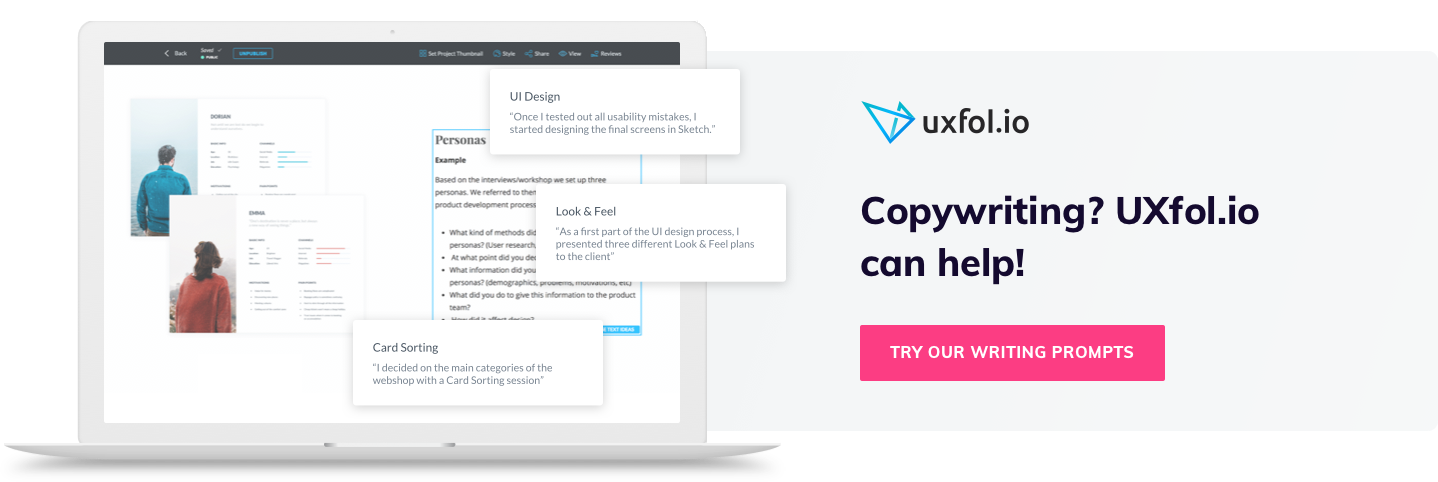
Should you use your portfolio during the interview?
For UX designers, portfolio presentation is part of the hiring process. That’s not the case with researchers. But it’s better to be prepared than sorry. It won’t hurt to bring your laptop or tablet with you so you can pull it out if you believe showing something can help the understanding of your interviewers.
Let’s say you’re talking about data visualization that convinced stakeholders about an unorthodox direction. It’s one thing to talk about it, but showing the actual visuals can make an even bigger impact. Just because you’re the one being interviewed, it doesn’t mean that you can’t initiate, especially if it helps your case.
Fact is, if there are many applicants for a position, it’ll be the small details that’ll put you ahead of the competition, so don’t be afraid to do your thing.
“It’ll be the small details that’ll put you ahead of your competition.”
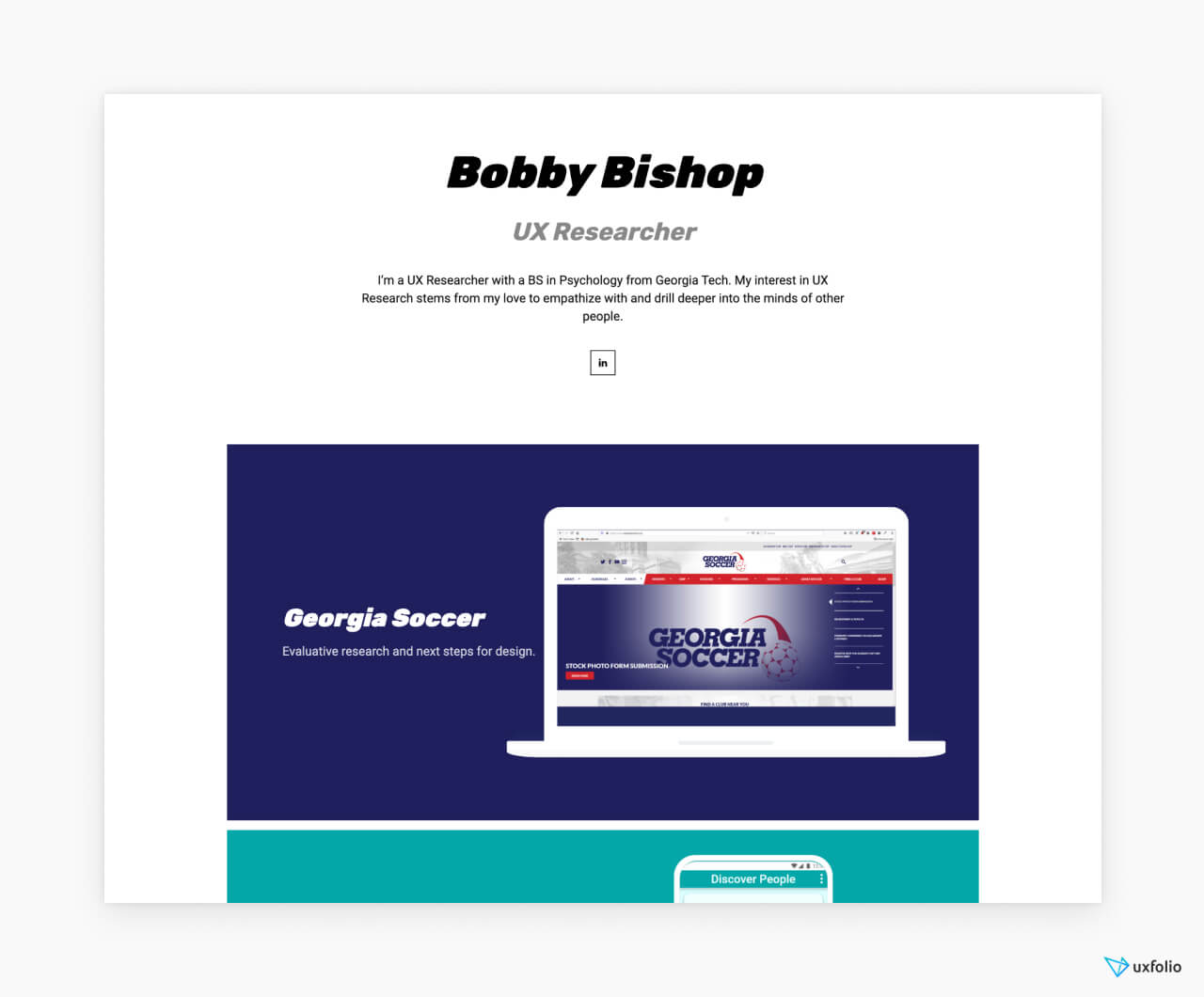
What makes good answers at a job interview?
What you must remember is that in many cases it’s not the answer that matters but the way you answer. It’s hard to resist someone that’s excited about their job. Many designers and researchers commit the mistake of trying to appear too-cool-for-school, acting how they believe a cool UXer should act, which is offputting.
So don’t mistake confidence with arrogance. Throughout the history of UXfolio , we’ve interviewed many cool designers and researchers. All of them have been down-to-earth and approachable. This just proves that you don’t need to put on a grand persona in order to work at a cool company.
Also, remember: all interviewers have their unique style and flow, so every interview will be different in some ways. Your interviewers can have a bad day, personal issues, and whatnot that’ll affect their mood and approach. These are the things that are outside of your control. Instead, you should focus on things that have power over:
1. Have confidence in your preparation
You might expect something very esoteric here, but instead, here’s the truth: at a job interview, confidence equals preparedness. The more you prepare, the more you think about your previous experiences and the why’s of your career, the more confident you’ll be. Even when you’re met with an unexpected question. The effect of preparing is three-fold:
- You won’t have to worry about the generic UX researcher interview questions. Since you’ve prepared for those, you’ll have fantastic answers. So instead of being anxious about the expected and the unexpected, you can cross out the former, and you’re already at 50%. Not a bad place to be.
- Just the fact that you’ve prepared and worked hard for it will give you a nice boost of confidence. Doing your best is the most you can do, and if you’ve done it, it affects your demeanor.
- By reflecting on your career, studies, and motivations to prepare for the interview, you’ll have answers even to unexpected questions. So you’ll have a much easier time to pull yourself together and give a well-rounded answer.
2. Examples make everything feel more real
If you do only one thing to prepare for your interview it should be collecting examples. Giving relevant examples alongside your answers is your key to nailing the interview. Using examples from your experience makes everything feel way more real and relatable. It also shows the impact of your work. And the list goes on.
Let’s take a very simple example: “what do you love about your profession the most?” A generic question, to which you’ll most probably give a generic answer about impact and changing people’s lives. But instead of finishing there, you should continue with an example of when your findings made a change in a previous project. It helps your listeners to form a picture and relate to you.
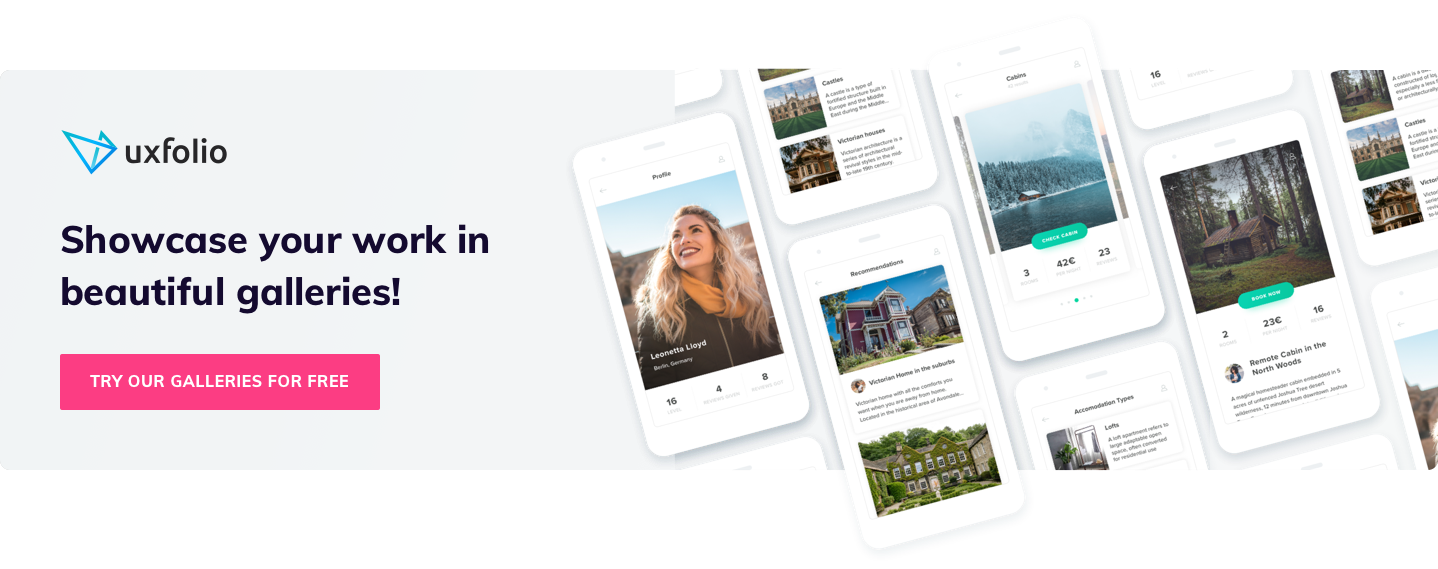
3. Show your willingness to grow
Yes, it’s a cliché, but it’s still important: you need to show that you’re willing to learn, adapt and evolve in your profession. And to continue with the clichés, it’s because nobody’s perfect and we must learn until we die. On a more practical note, your willingness to grow can prove to your potential employer that if needed, you’ll be willing to do something that might be new to you or not your favorite thing. A new method, a new tool, anything. And whenever possible, don’t forget to give an example from your previous projects.
4. Be gracious
Do not say anything negative about your workmates, bosses, or workplace in general. Avoid even the light stuff that you think will show you in a better light, such as not getting “enough challenging tasks”. The only thing you’ll achieve is them asking themselves “will our tasks be challenging enough for them?” (And we know interviewers who’ll actually ask you this question.)
You have some “experts” encouraging you to be totally honest, and this approach might work in a few cases. But the real world is different. The new school of recruiters might be receptive to your honesty, but most companies are not there yet, so it’s better to just keep safe.
Build your UX researcher portfolio with UXfolio !
To get to the interview, you need to pass the initial stages of the hiring process. These involve the review of your portfolio. And creating an impactful portfolio can be a pain. That’s why we’ve created UXfolio, the portfolio builder for UX designers and researchers. UXfolio’s case study generator, portfolio templates, font pairings, built-in device mockups, and other intuitive sections were made to satisfy the specific needs of UXers. You can create a stunning UX researcher portfolio without having to design or code. Try UXfolio for free!
Interview Toolkit: Top 5 UX Researcher Questions to Prepare For
So you’ve landed an interview for your dream job in UX research —congratulations! Now it’s time to prepare. This can be a stressful undertaking for just about anyone, but we’re here to help.
We’ve poured over the most common questions asked of UX researcher candidates, and consulted our very own UX researchers and career experts to determine what kinds of questions you’re likely to be asked.
We’ve boiled all of that information down into a concise toolkit that covers the core qualities employers are looking for (and that you should highlight at every opportunity), the top five interview questions, and how to answer those questions.
- Core qualities employers look for in a UX researcher
- The top 5 questions (and how to answer them)
- The final key: You’ve got this
1. Core qualities employers look for in a UX researcher
These are the core qualities and skills you want to communicate at every opportunity—both explicitly (tell them) and implicitly (show them).
Hiring managers are looking for UX researchers with:
- Knowledge of UX research methods and tools
- Experience doing UX research
- Empathic superpowers
- An analytical mind
- Fantastic communication skills
- A knack for collaboration
- The ability to do all of this under pressure (when necessary)
Keep these core qualities in mind with every phone call, every email, every interview task, and definitely for the face-to-face interview (whether it’s in-person or remote).
The best way to do this is to go down the list and make your own inventory of how you can demonstrate each these qualities both explicitly and implicitly. We’ll call this your Inventory of Awesomeness .
Think about your qualifications, your resume/CV, and all of your work experience—whether or not it’s directly related to UX research. Transferable skills matter! If you’re uncertain what experience will really count or be helpful, check out this guide: What UX design qualifications do you really need?
There’s a plethora of soft skills that successful UX professionals possess. Think about which ones you’re confident in, and which ones you want to develop further.
Know your portfolio inside and out. This requires having a strong UX research portfolio to begin with—and don’t forget to avoid the common mistakes UX researchers make in their portfolios .
All of this goes into your Inventory of Awesomeness.
Keep your inventory simmering in the background as you prepare for the interview, and let it become so familiar to you that you can draw from it without even thinking—a useful skill when you’re in the middle of the interview, killing it (in the best ways, of course) from beginning to end.
2. The top 5 questions (and how to answer them)
Will your interviewers ask only five questions? Probably not. Will they ask exactly these questions? That’s unlikely. But the questions they’ll ask will be crafted to understand a few essential things about you—and that’s exactly what these top five questions target.
If you’d like to go through these articles in video format, check out our run-through of them:
1. What is your research process?
Because this question is so broad, it has a high potential for throwing you off your game right at the start. Don’t let that happen. Find a way to describe your research process in just a few sentences.
In asking this question, your interviewer is trying to gain insight on who you are as a person and a UX researcher, how you involve others in your process, what methods or techniques you know and consider, and how all of this fits with the broader company culture and team dynamics. That’s a lot to pack in! You’ll want to paint with fairly broad strokes without being vague.
Here’s what NOT to say: “ Well, I figure out what the objectives are and then decide what methods are best and then get to work.”
And here are some templates to get you started on the right foot:
- My first priority going into a project is to…
- After that, I need to…
- Depending on what I find out, I’ll either…or…
- When that’s done, I move on to…
2. How would you design a study for _____?
Questions like this are easy to ramble on and on about. After all, if you want a job in this particular field, this is exactly the kind of thing you’re passionate about.
Summon all your powers of concision, empathy, and analysis! You need to quickly dissect the question and focus on the elements that seem most important to your interviewer.
When an interviewer asks a question like this, they’re aiming to learn a lot about you all at once. They want to get a glimpse into your approach and your process; they want to see your consideration of stakeholders’, team members’, and study participants’ needs.
To answer this question well, you need to have a clear understanding of your own process and an ability to communicate—briefly and accurately:
- How you create a research plan and estimate a timeline for the process
- When you choose qualitative research over quantitative (and vice-versa)
- How you scale qualitative feedback (such as categorizing/coding similar responses)
- How you make sure that the results of your research inform decisions during all relevant project stages
- Where you start your research when you’re creating a product from scratch
- Where you start with an existing product
- How you pick research methods for each stage of a project
- How you communicate with the various individuals and groups involved in every stage of the process
3. How do you communicate [topic, concept] to [specific person or group]?
With a question like this, the interviewer is looking to understand how you adapt your communication to the needs of a specific audience. How will you present findings to the VP of Product versus the VP of Engineering? How do you sell the value of UX research to various internal audiences? How will you make a complex product or concept accessible to participants in a focus group or usability test?
Forms this question might take:
- How do you communicate your findings to different stakeholders?
- How do you handle it when people are sceptical of the value of usability research?
- How would you sell the value of UX research to a VP of Product versus a VP of engineering?
- How do you present a product or concept to a group of test users who might not understand it?
This type of question can seem oddly specific in the moment. But do what you do best: break it down and address your user’s (interviewer’s) needs. What are the active verbs in the question? What kind of project does the question focus on? What people or teams or interpersonal issues are at play?
Understand the focus, channel your UX researcher superpowers of empathy and analysis, and (again) draw one or two specific items from your Inventory of Awesomeness.
4. Why do you want to work at this company? How would you improve on our product?
Ever been on a date and all the other person could do was dish out compliments that could have applied to any other person in the room? Yeah…don’t do that.
While we’d question whether there’s ever a good time for empty flattery, this is especially not the time for it. Do the work and understand why you want to work for this specific company and exactly what kind of change or projects you’d want to implement there.
The best approach to preparing for this question is to do some foundational work that, ideally, you did a lot of before you even applied. Here are questions to guide that line of inquiry:
- What’s the company’s history?
- What about the company culture and values seem like a good fit to you and why?
- What products do they have?
- Which product(s) would you likely be working on? Is it interesting to you? Why or why not?
- What is really great about the product(s)?
- What isn’t so awesome about the product(s)?
- What improvements could be made and which ones would you prioritize?
- Of those product improvements, how would you design studies to explore them?
5. The possible curveball question…
You know the one. You’re never ready for it and it’s rarely what you’d expect. Given the nature of the curveball question, preparing for any specific questions will be a waste of time. But here are some examples to give you the general flavor:
- Why should we hire you rather than another candidate?
- Are you on a specific diet?
- What books do you read?
- If you could be any household object, what would you be and why?
- Can you estimate the number of people on the I-25 right now?
- What gets you up in the morning?
- How did you handle the last fight you had with a coworker?
Given the wide variation in this narrow sampling, it’s clear that there’s no realistic way to predict what your interviewer will try to learn with a curveball question. So how do you prepare for it?
Here are some general guidelines. If the question:
- Relates to knowledge, skills, or experience : Respond in the ways that seem most reasonable—based (as always) on your inventory of qualities, skills, and experience.
- Could lead to self-promotion : Balance your boldness and confidence with a dose of graciousness and appreciation for your peers/competition. Finding a balance here is important—you don’t want to undersell yourself, but you also don’t want to seem pompous.
- Is impossible for just about anyone to answer: Admit you have no clue and then give a crack at how you find an answer or make an educated guess.
- Is answerable, but seems entirely random : Use it as an opportunity to A) showcase your personality, skills, and interests, or B) simply build rapport with your interviewer.
3. The final key: You’ve got this
If you landed an interview for a UX researcher position, chances are you’ve shown the hiring manager at least some of the value you bring to the table. Enough so that they’re happy to spend time and resources getting to know you better!
Look over your Inventory of Awesomeness. Read a little more about the best ways to prepare for your next UX design interview . Do some power poses . Find a mirror, look yourself in the eyes, and breathe . You’re going to rock this interview.
(And if you don’t, you’re a UX researcher! You’ll find the points for improvement and you’ll do better on the next iteration. We believe in you.)
If you’d like to learn more about UX research and UX research portfolios, here are some resources for further exploration:
- What is quantitative UX research?
- What is qualitative UX research?
- What Does A UX Researcher Actually Do? The Ultimate Career Guide
- How to Conduct User Experience Research Like a Professional
- How To Build A UX Research Portfolio (Step-By-Step Guide)

COMMENTS
• Don't try to ask all of these, prioritize based on your research goals. • For each answer, be sure to ask "why" or "why not" to dig deeper. 1. CUSTOMER INTRO QUESTIONS These questions are aimed to fill in any gaps about the person's day to day that may not have been answered in the participant questionnaire, screener, or survey.
Interviewers are going to ask questions about how you'd handle these situations. Be prepared to answer them. Stay calm and logical. Your interviewer will likely ask complex questions that require deep thought. Don't rush to an answer. Take a moment to process the question to answer it logically. Ask clarifying questions
Now, to make sure you stand out against other candidates, you need to prepare stellar answers to potential interview questions. Leaving aside the usual "tell us about yourself," types of questions, here is a list of the most common UX research interview questions and tips for answering them, including: Background questions
The hiring manager is also likely to ask technical interview questions about your work approaches, including how you approach UX research, solve challenges and achieve results. Consider some in-depth questions you may encounter during your interview:
UX research methods like card sorting are a good way to understand people's mental models, but you can also gather this insight through thoughtful user interviews or research questions. User-focused questions also cover understanding attitudes towards product adoption, use habits and circumstances, pricing models, and demographics.
Top Tips to Answer These Adaptability Questions Confidently. UX research is a rapidly evolving sector. You have to adapt quickly. While answering the UX research interview questions, include these tips to display your adaptability effectively: Be specific about the research methods you have used, the challenges you faced, and the outcomes you ...
The Importance of UX Research Interviews. UX research interviews serve several vital purposes for both employers and job seekers: Skill Assessment: These interviews allow employers to evaluate a candidate's technical knowledge, research methodologies, and problem-solving abilities. By asking specific questions about past projects and ...
General questions about UX research, Career-related questions, Experience-related questions, and; Skill-related and technical questions. 1. General questions about UX research. After the usual rounds/warmup question, most interviews move on to general UX-related topics. These questions are rather broad and they provide a glimpse into your ...
Comprehensive, community-driven list of essential UX Research interview questions. Whether you're a candidate or interviewer, these interview questions will help prepare you for your next UX Research interview ahead of time. ... It's essential to ask the right questions in order to come up with reliable solutions, and to ask great questions ...
Landed an interview for a UX research position? Stressing about interview prep? ... But the questions they'll ask will be crafted to understand a few essential things about you—and that's exactly what these top five questions target. ... How you make sure that the results of your research inform decisions during all relevant project stages;